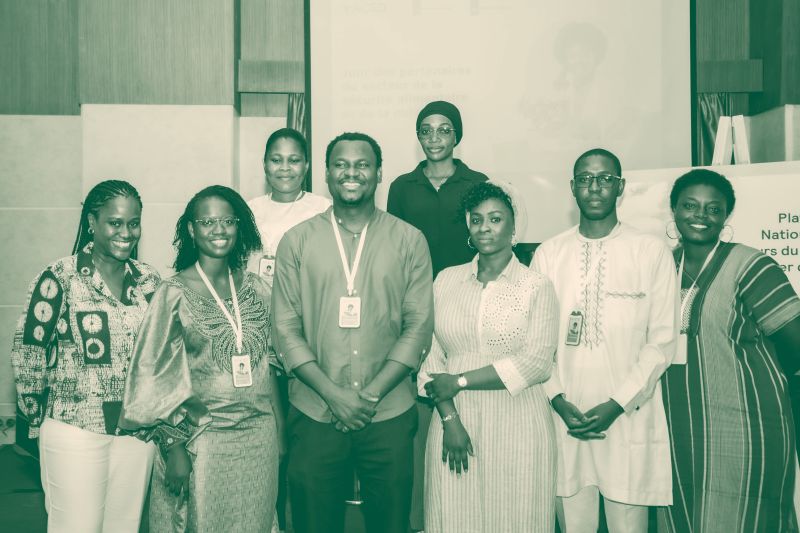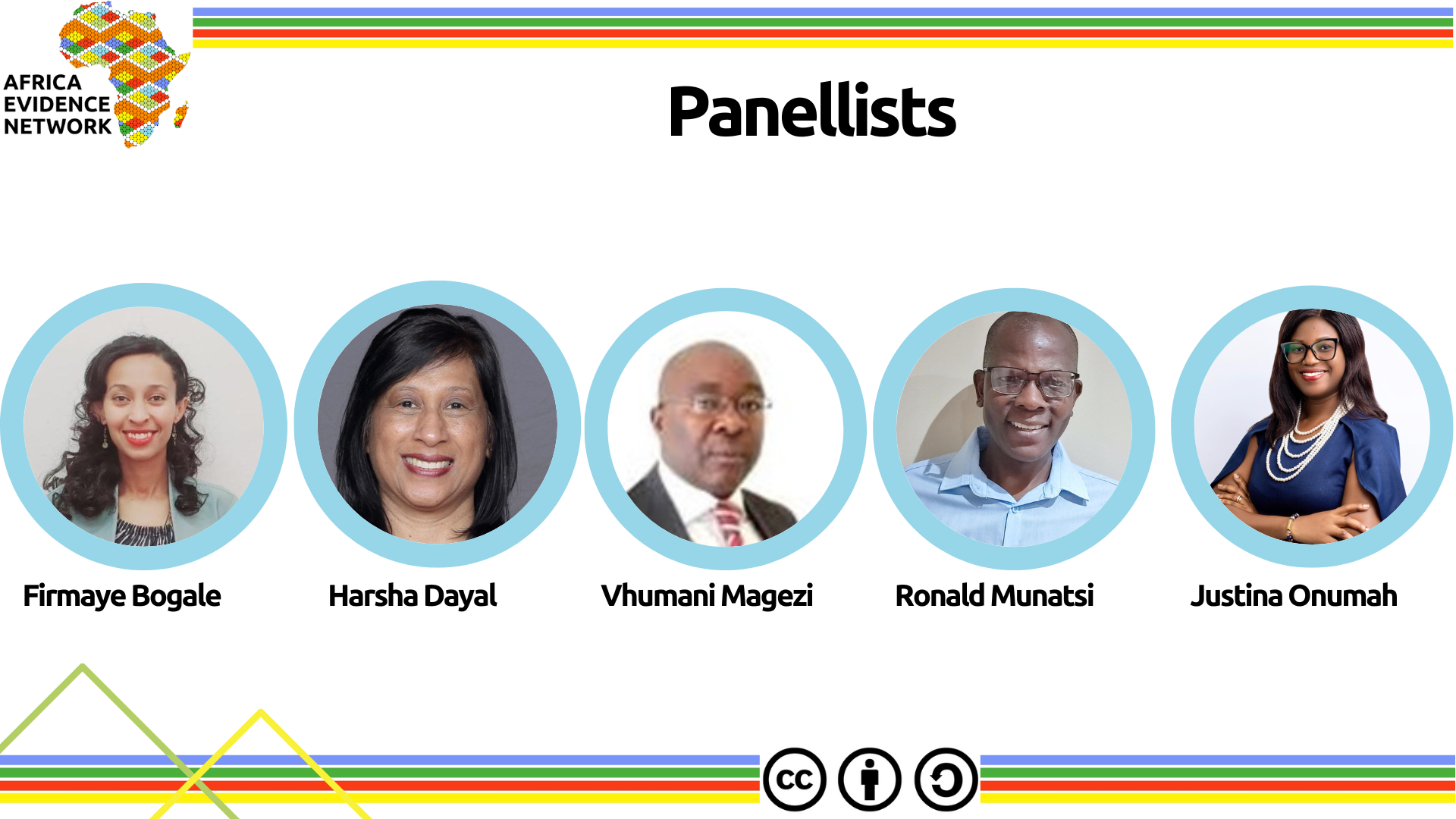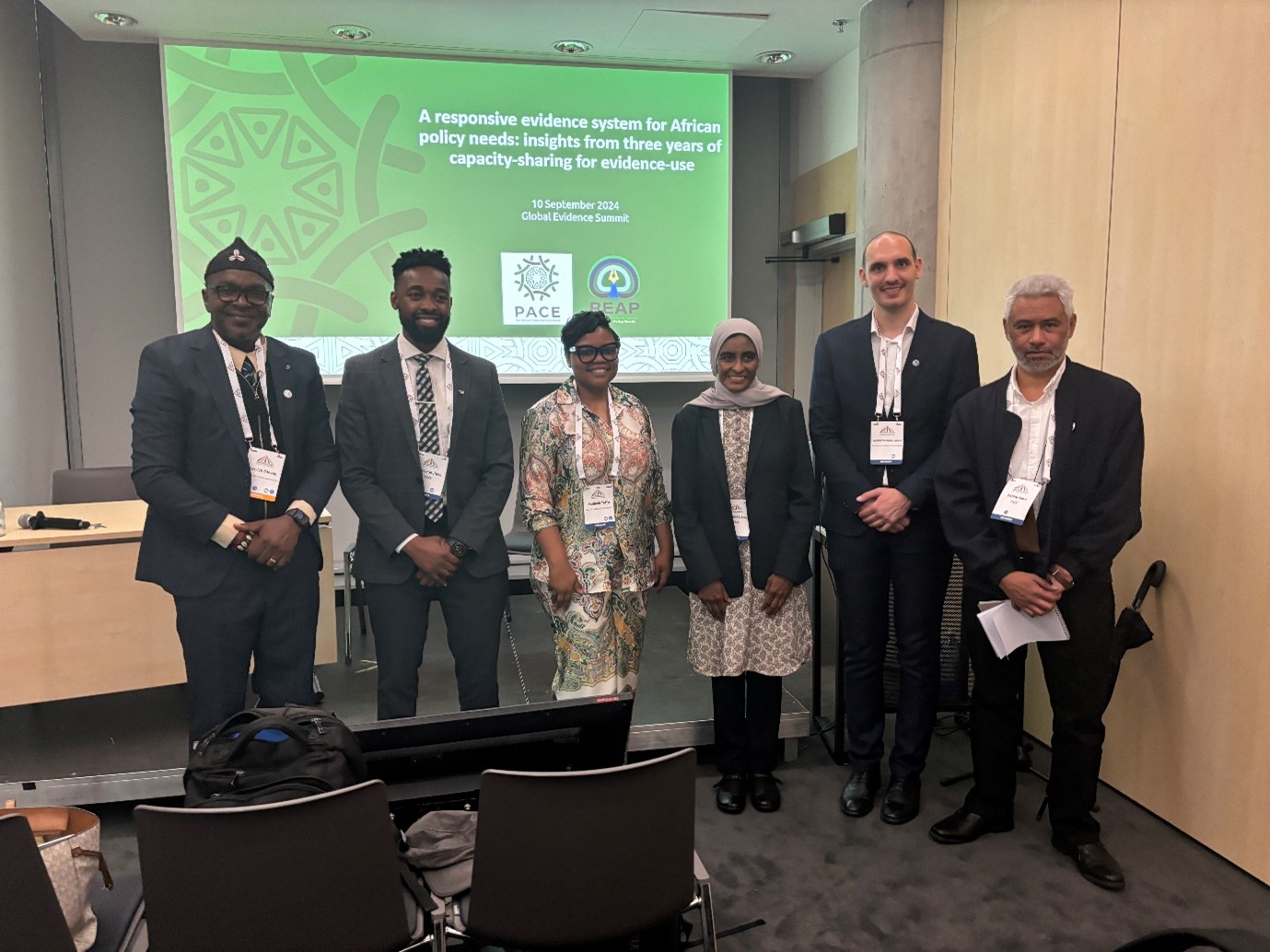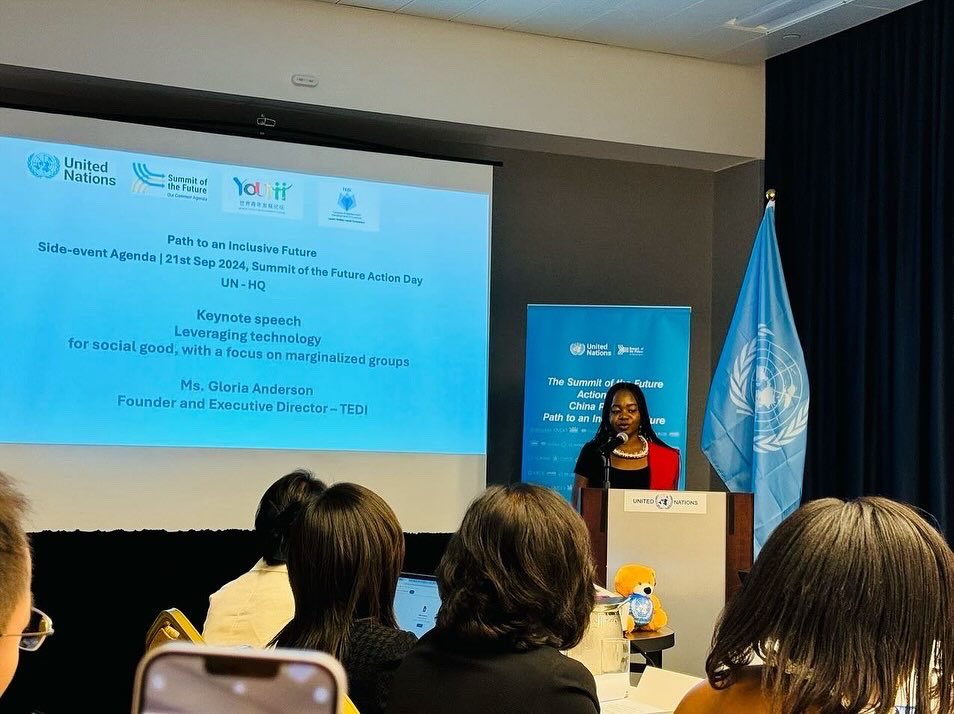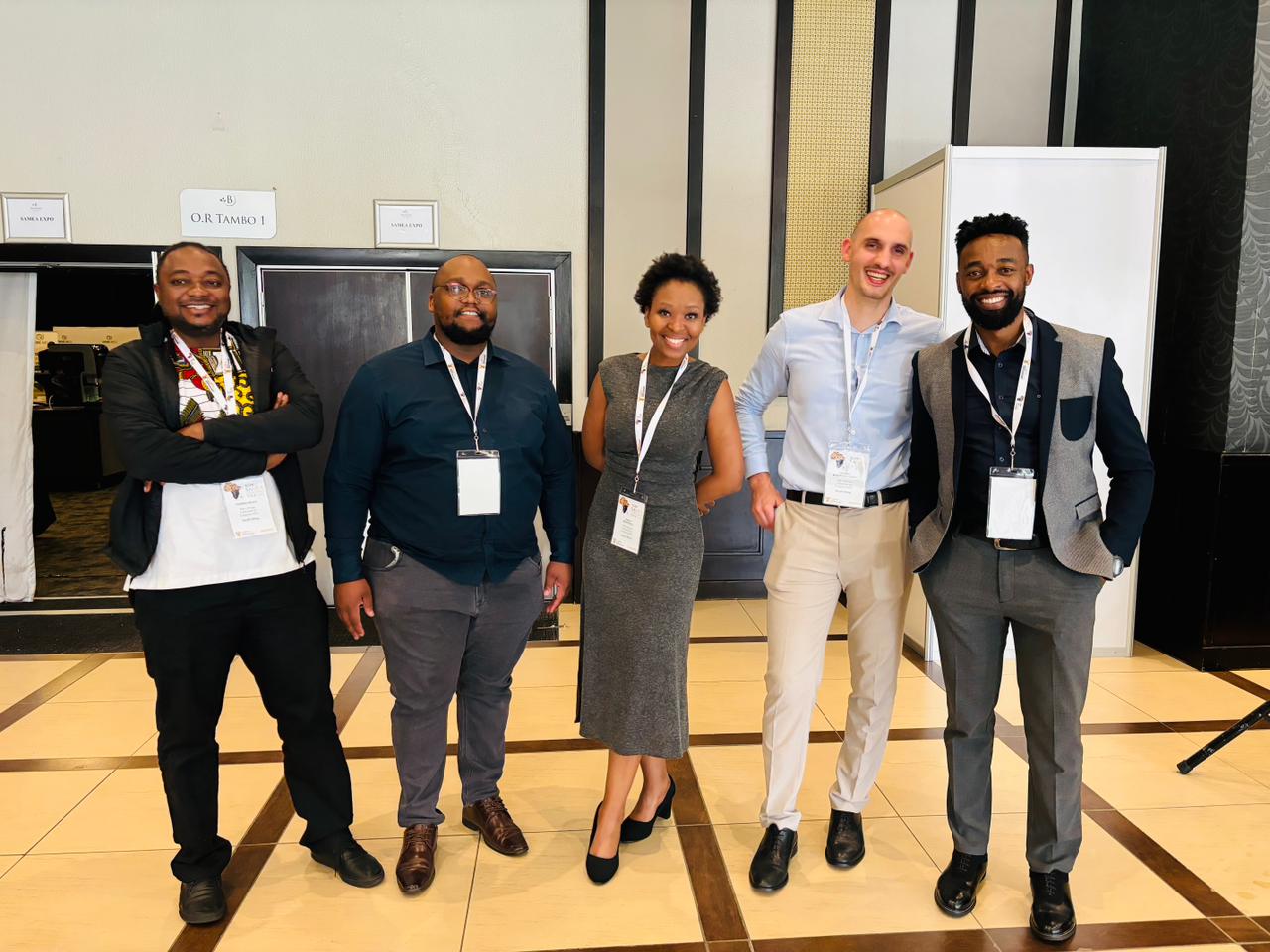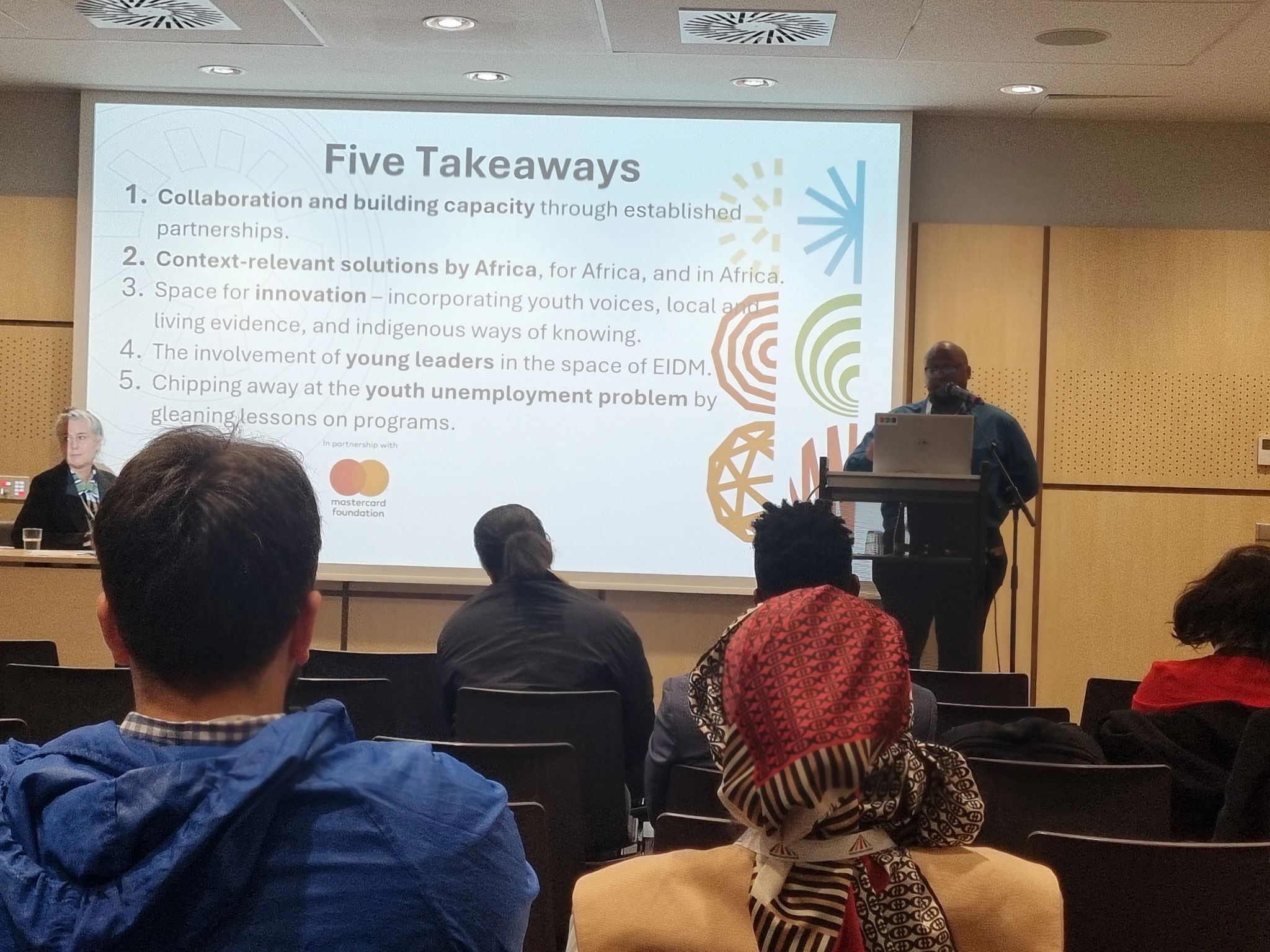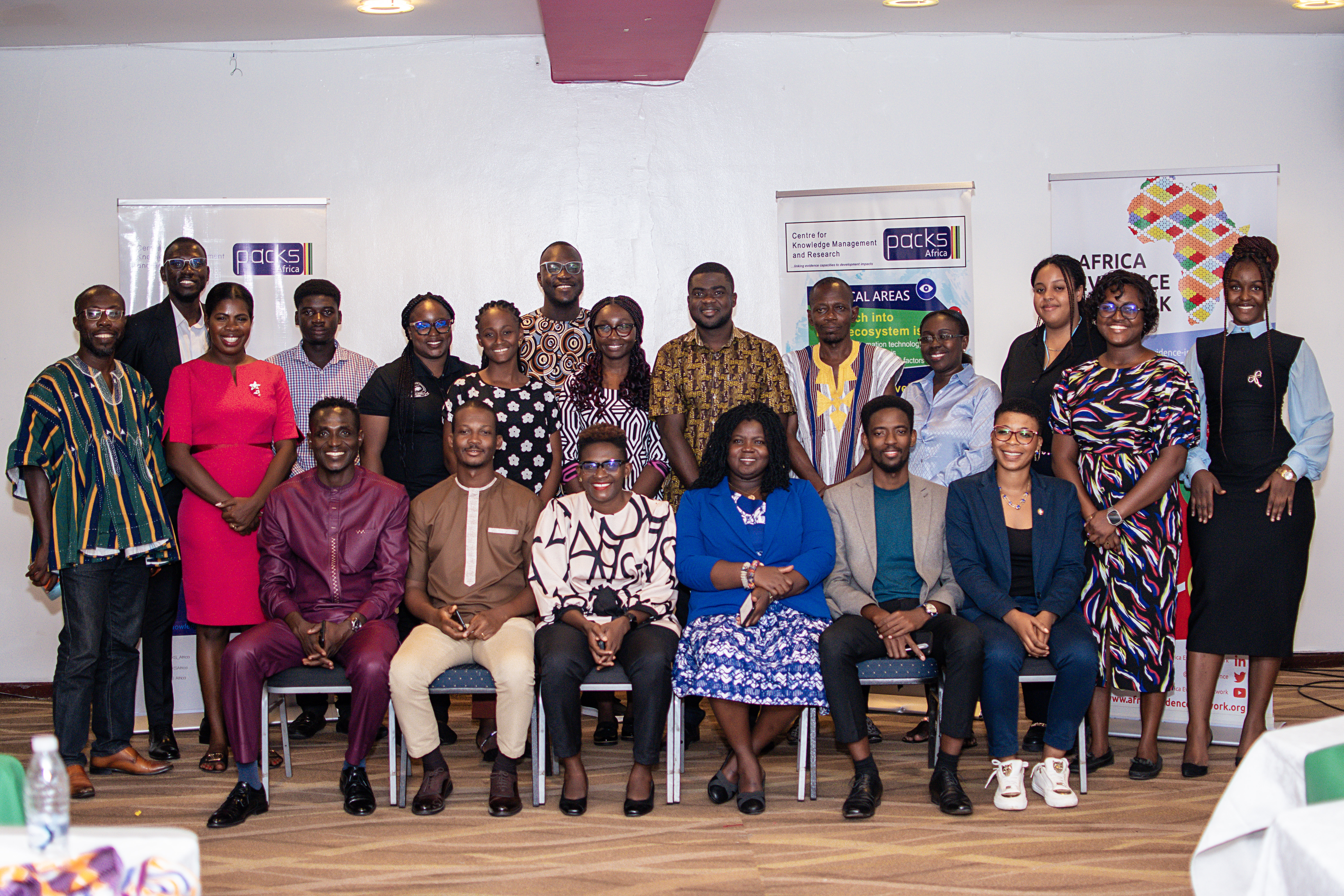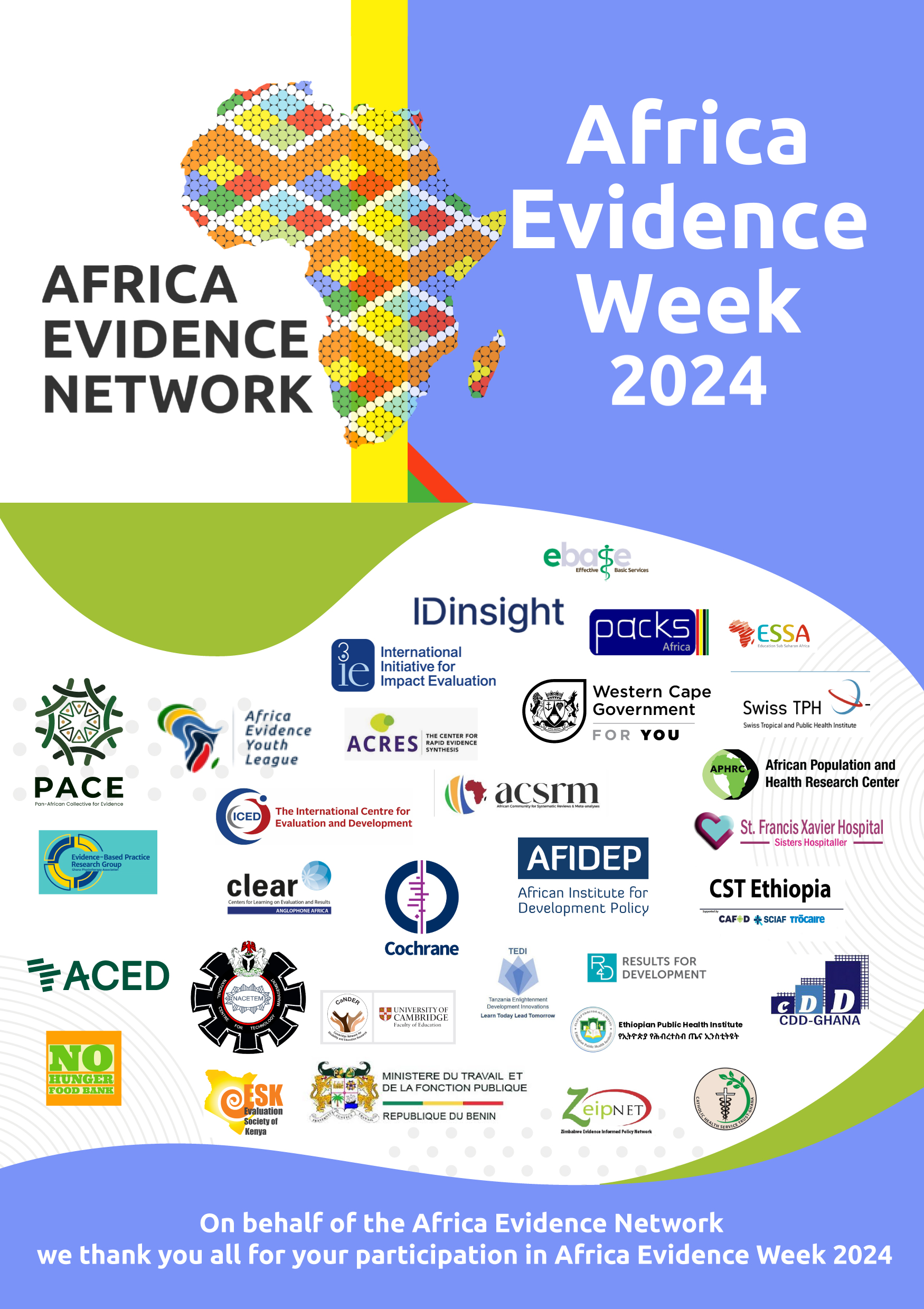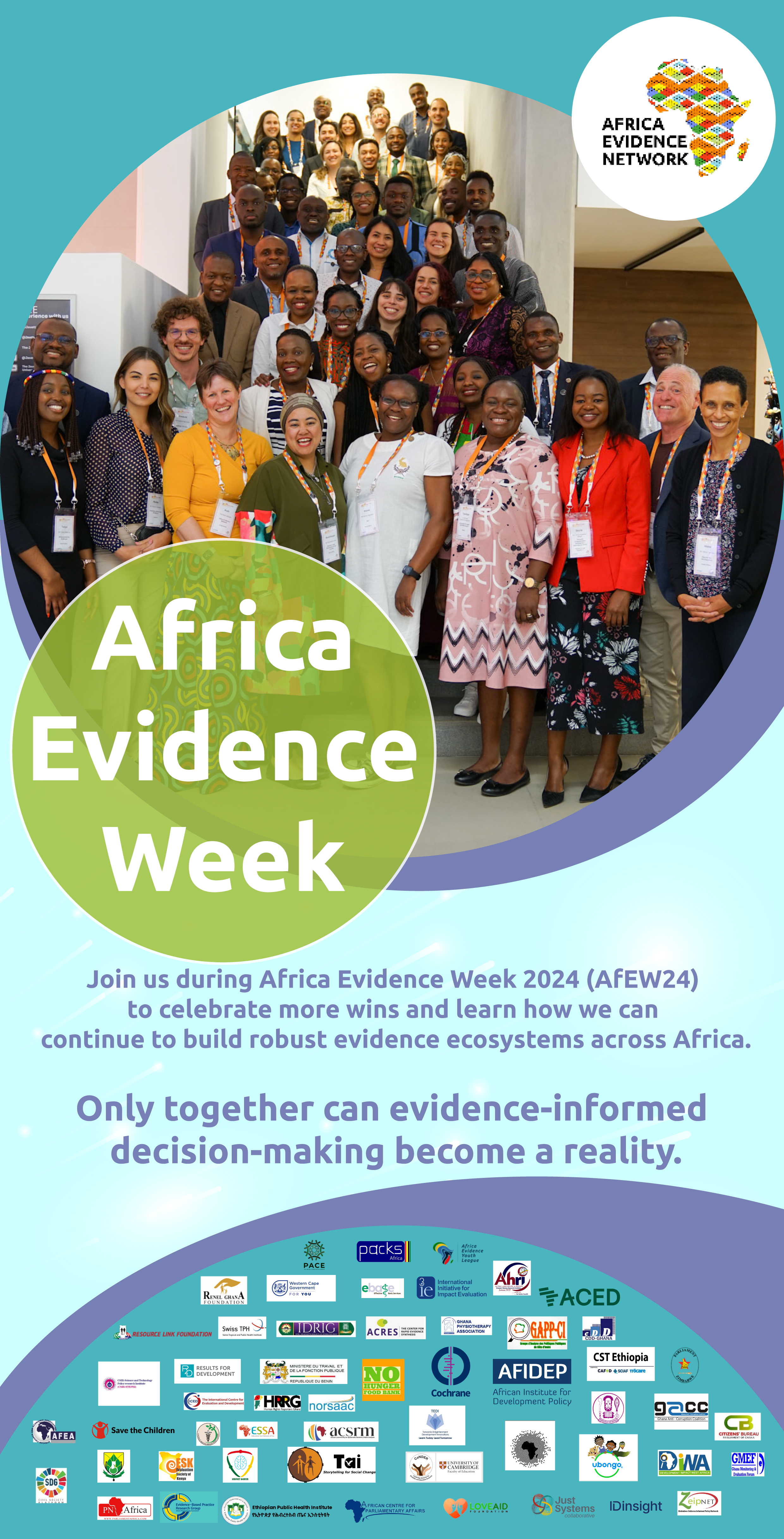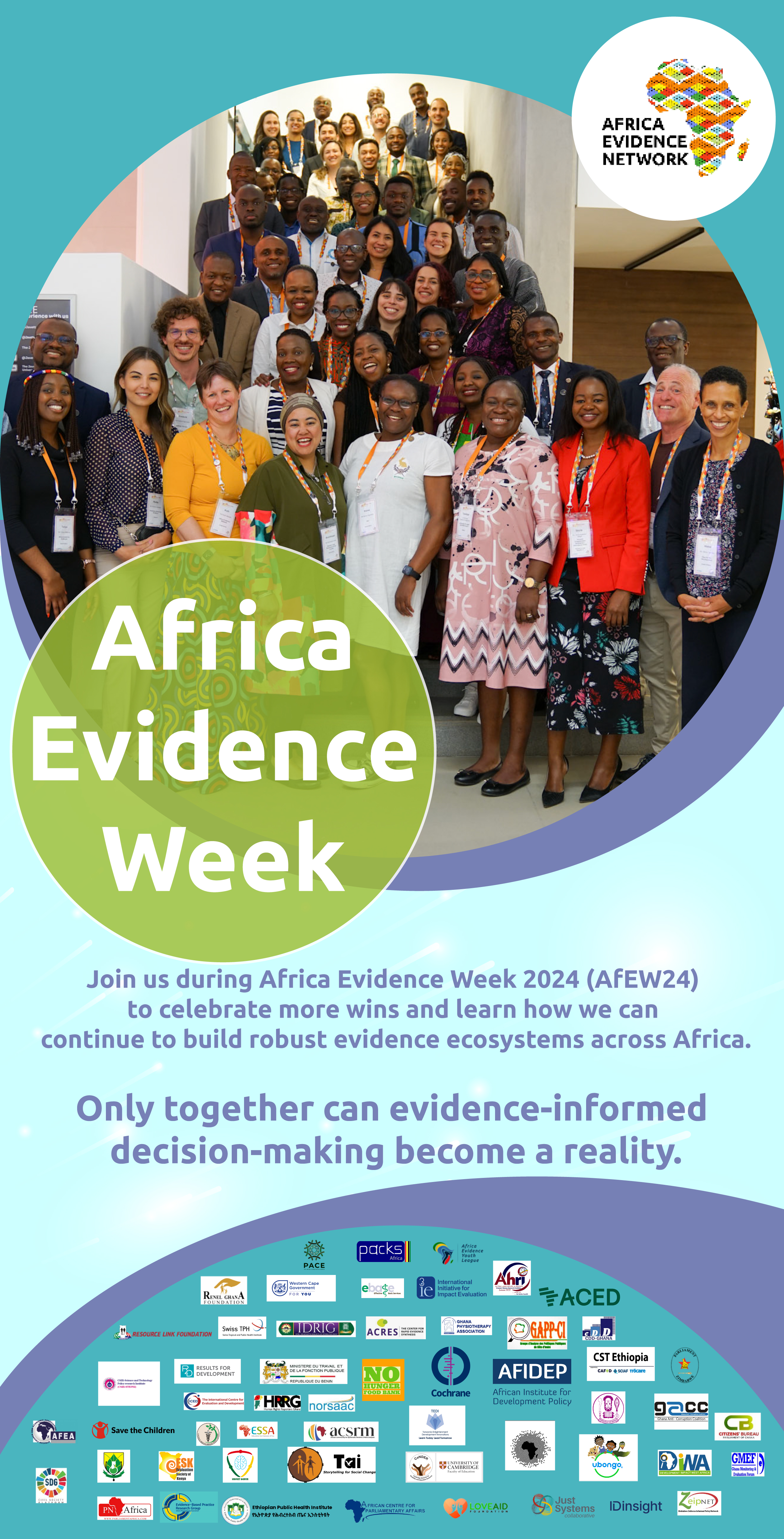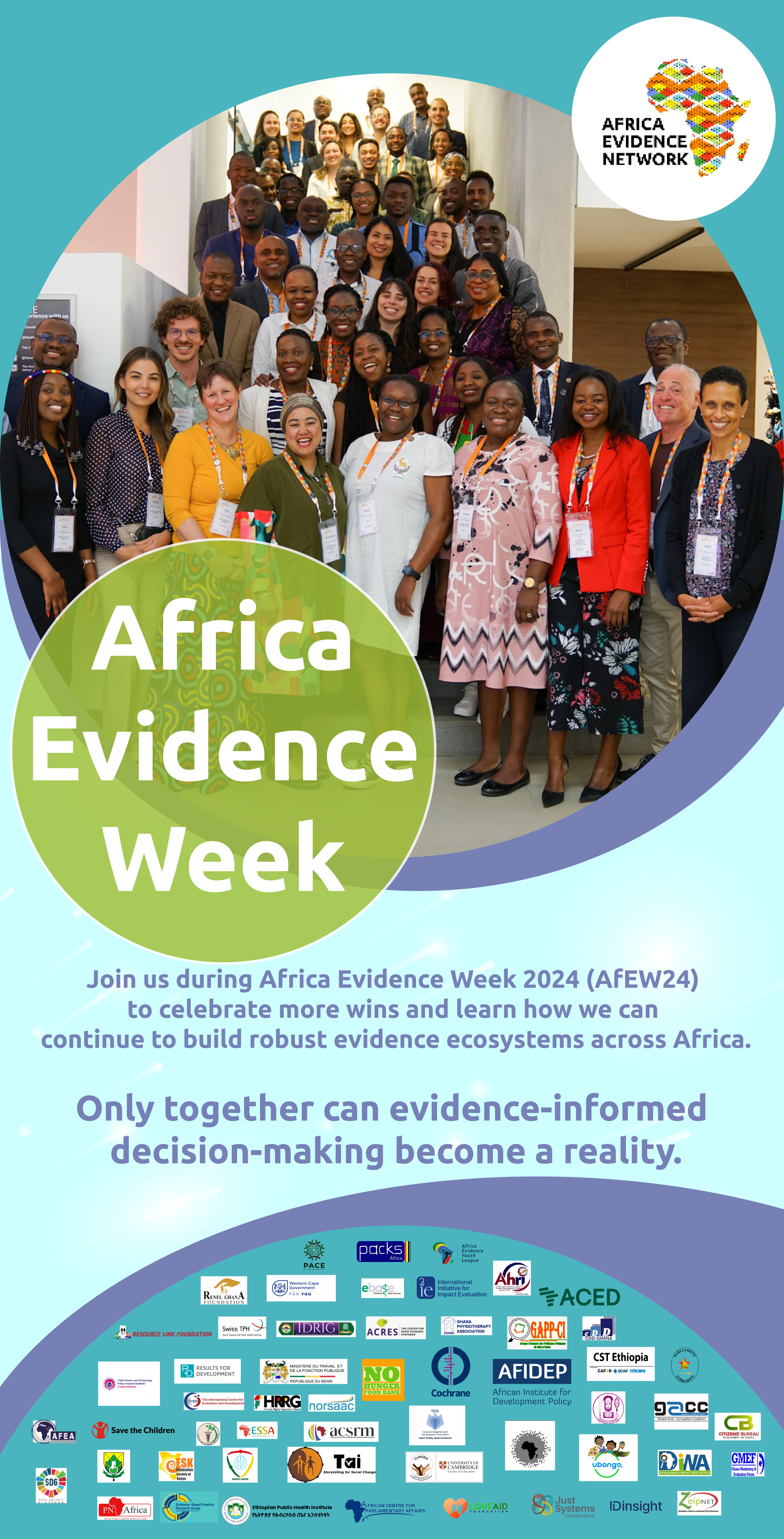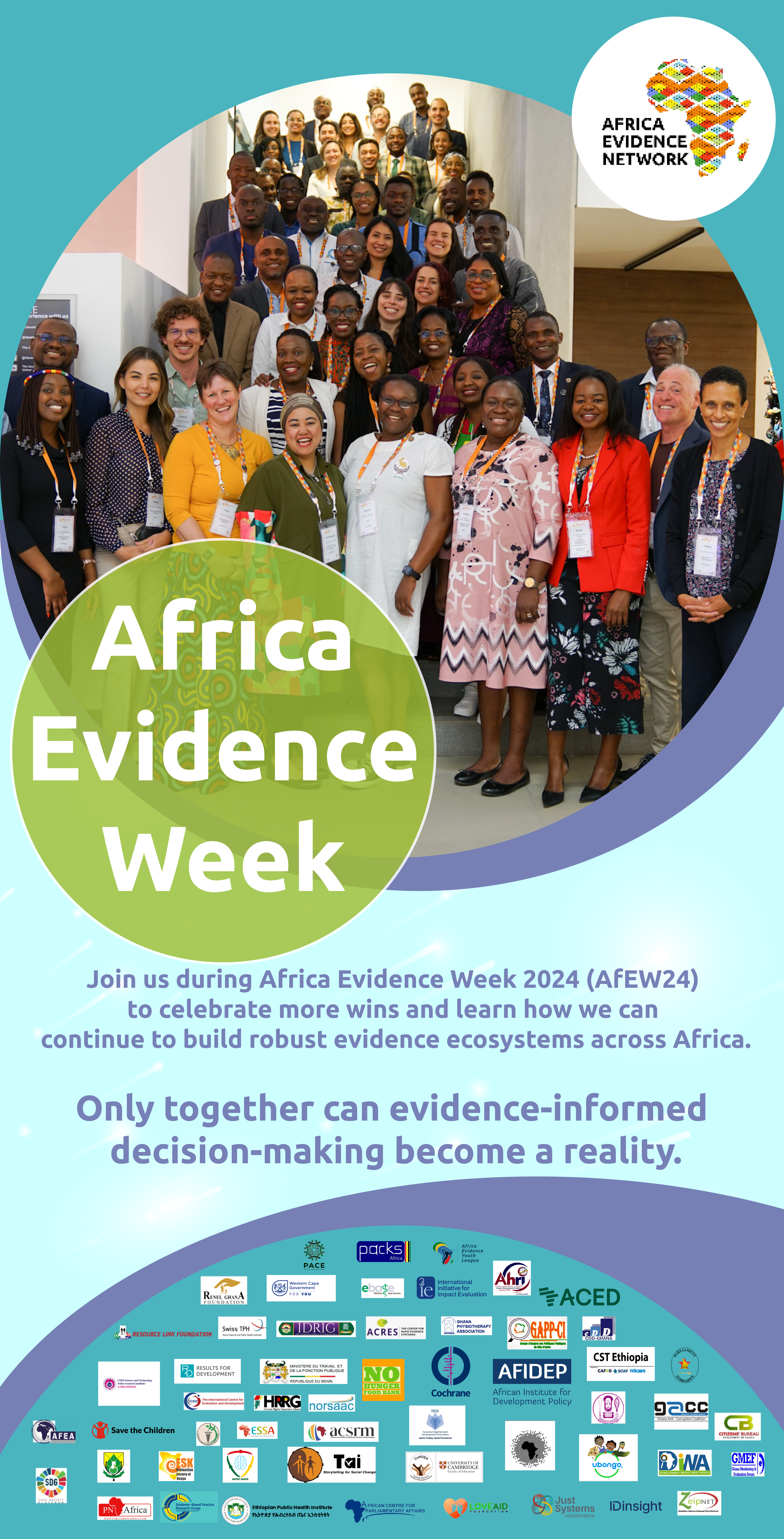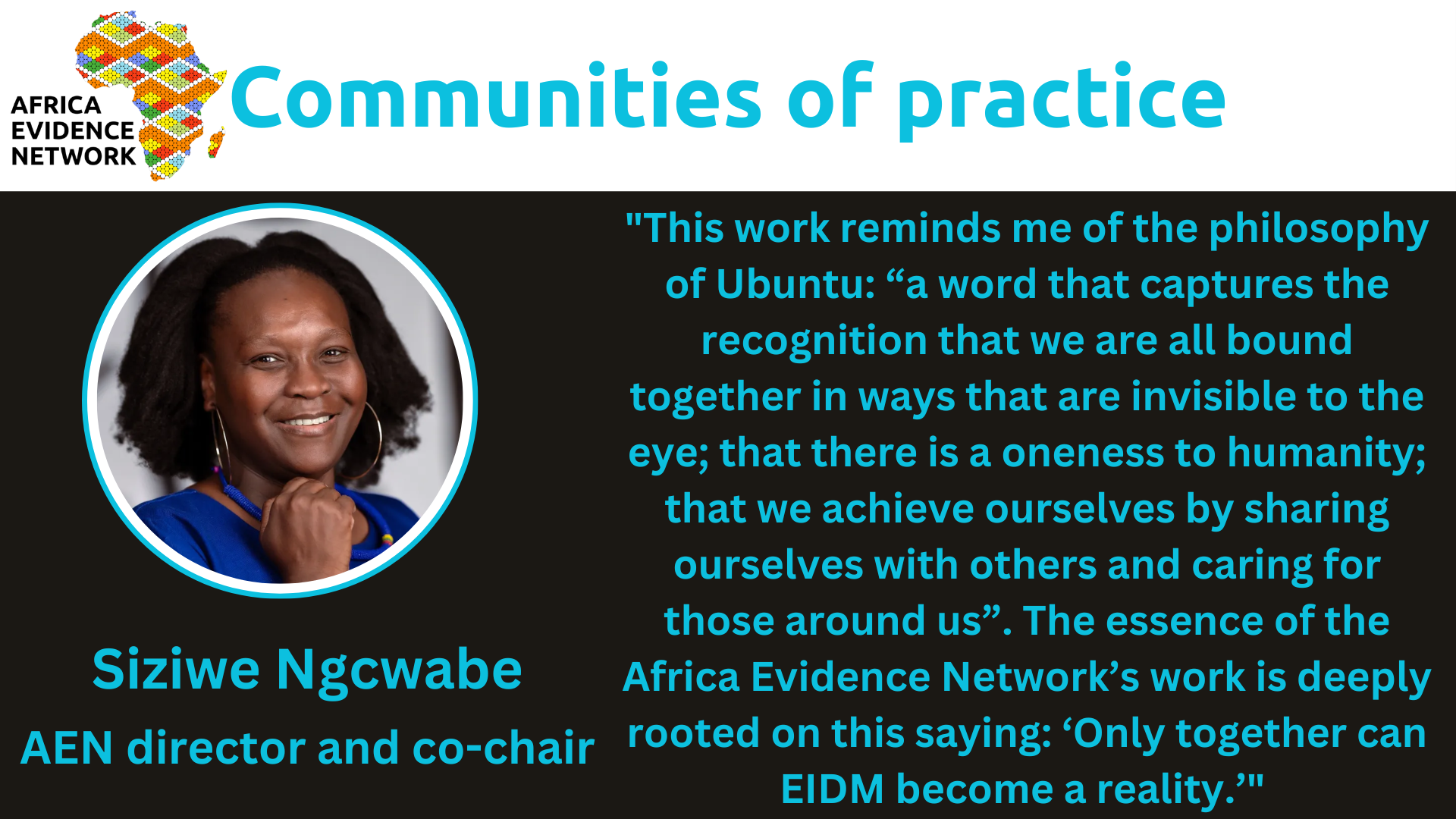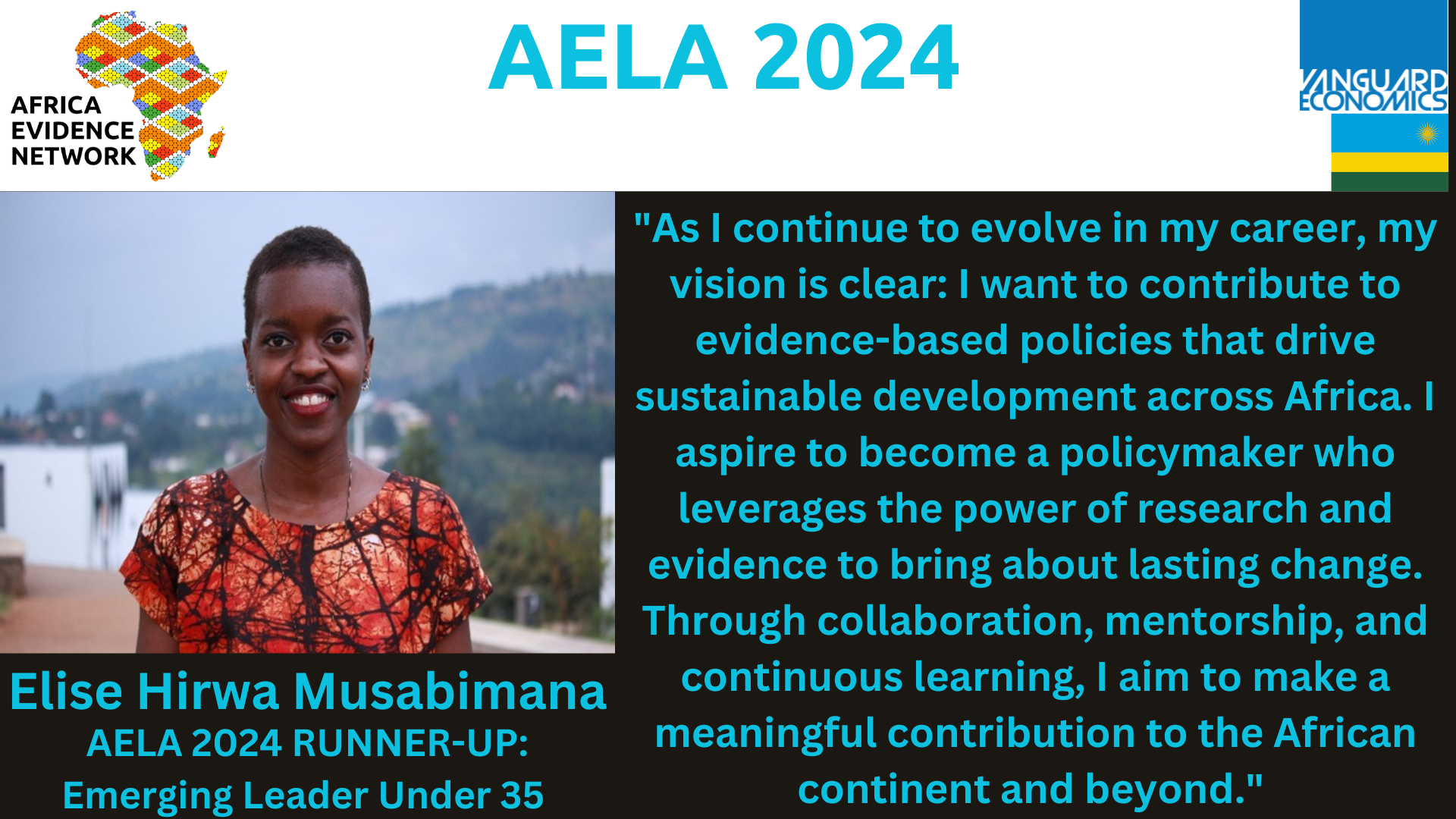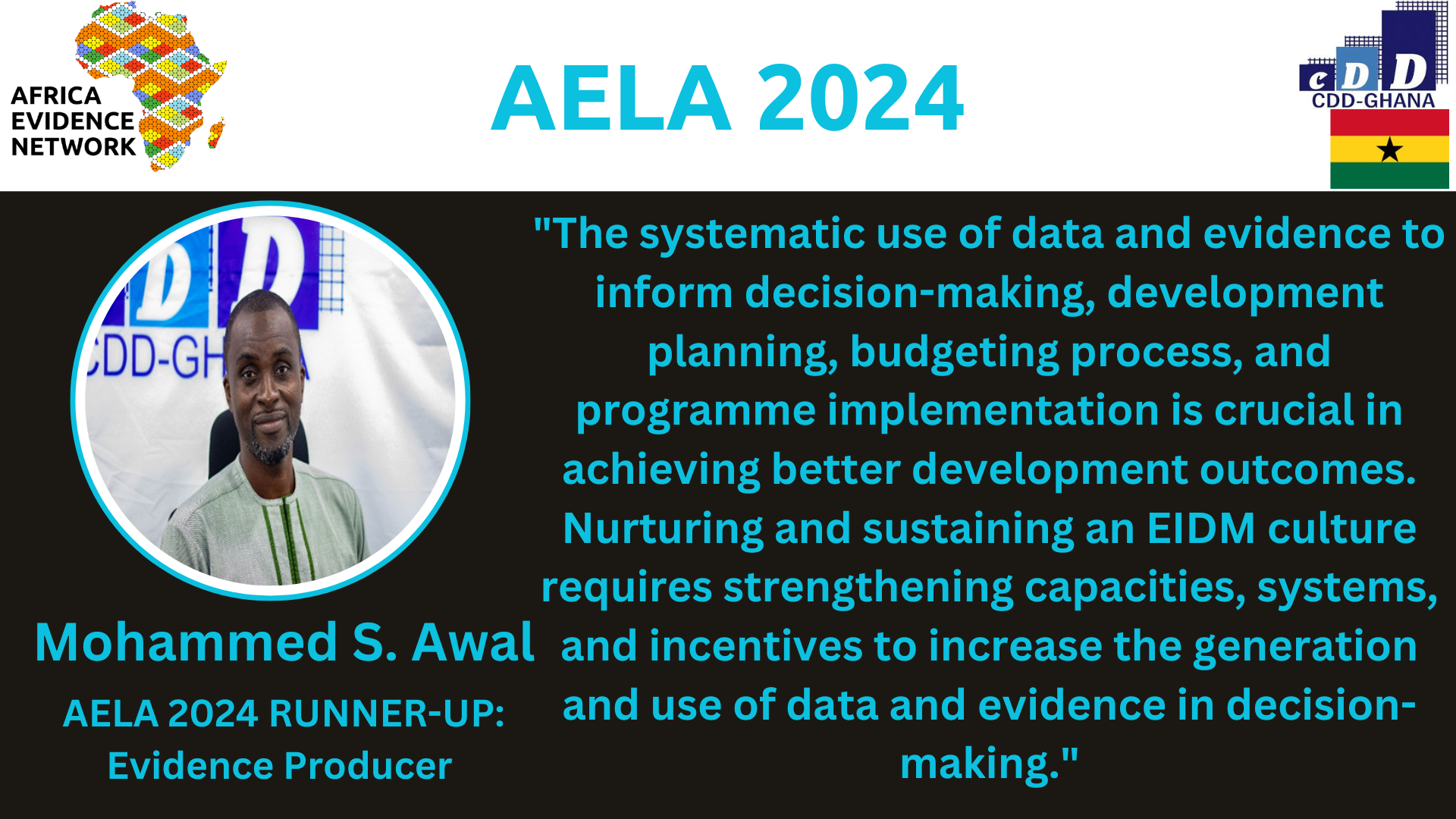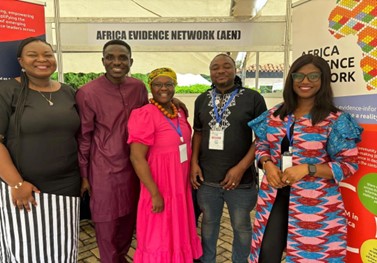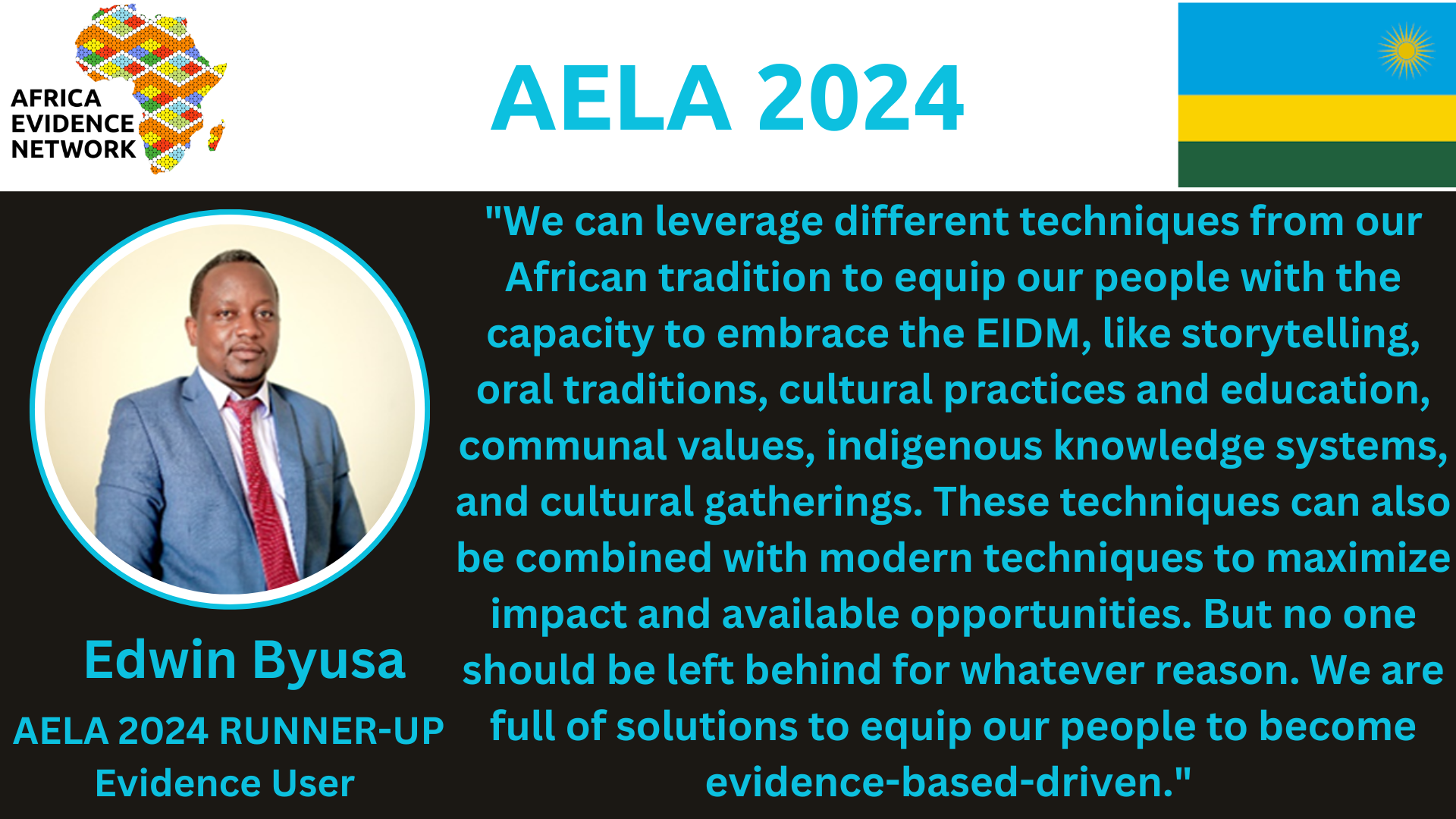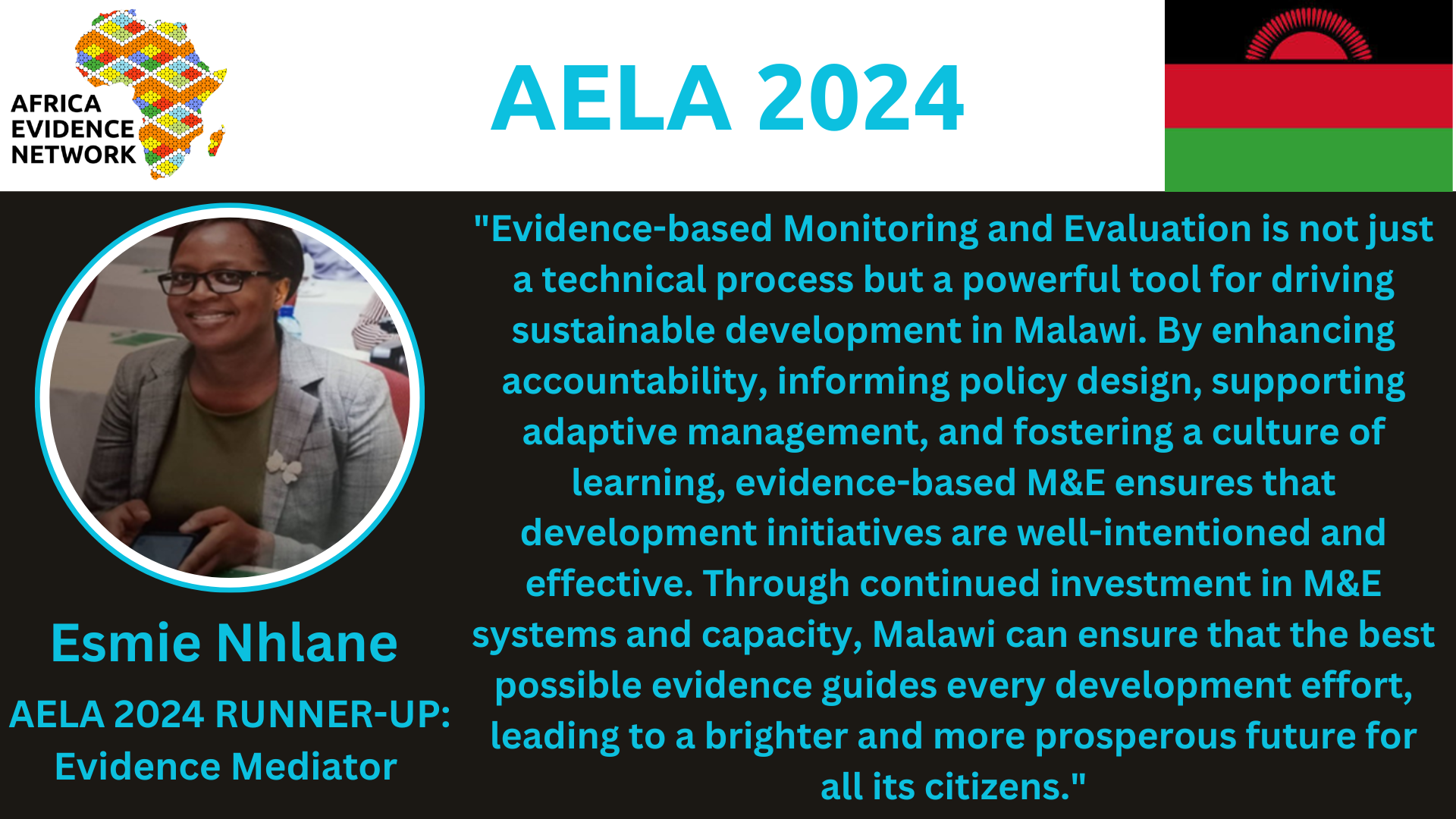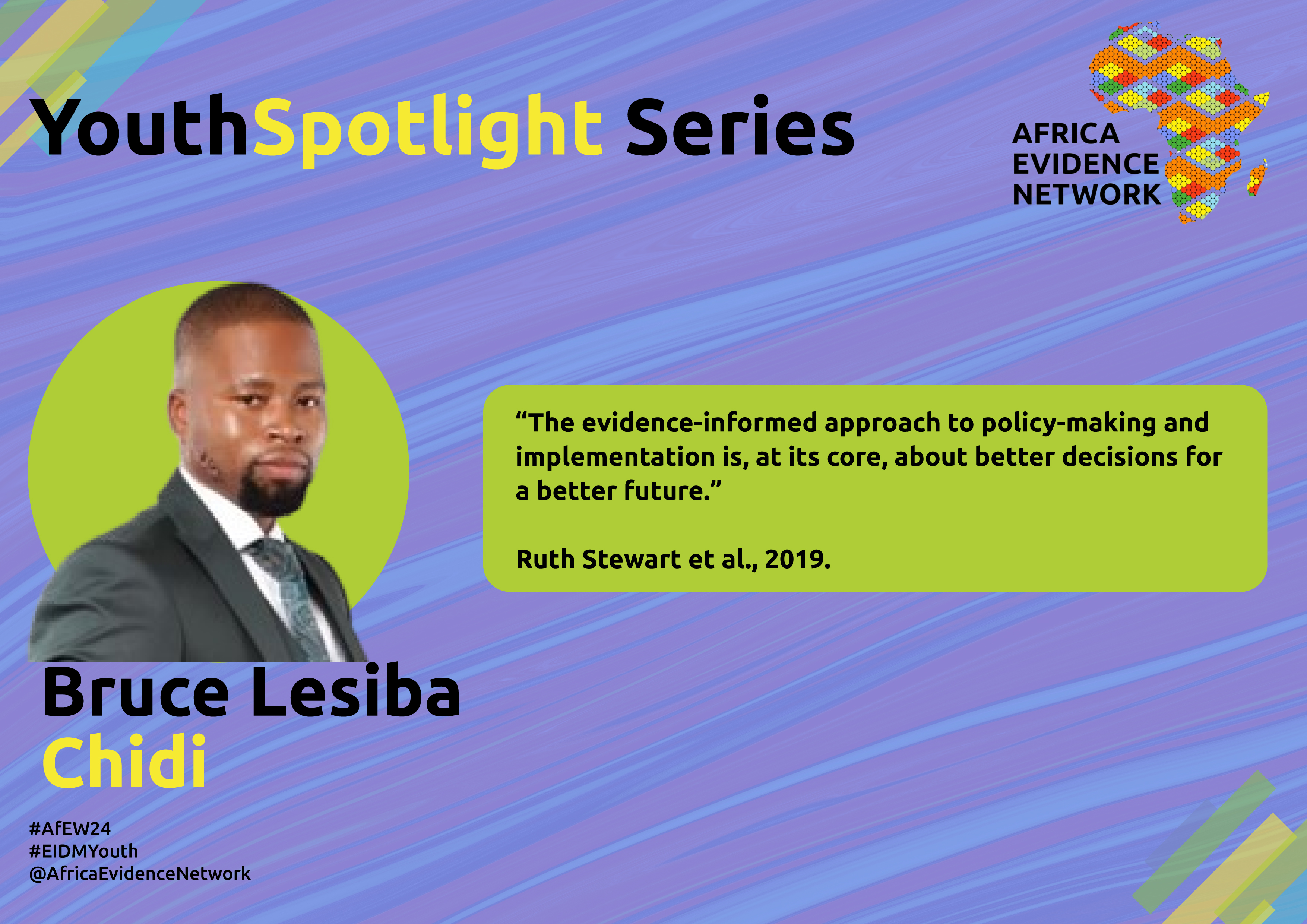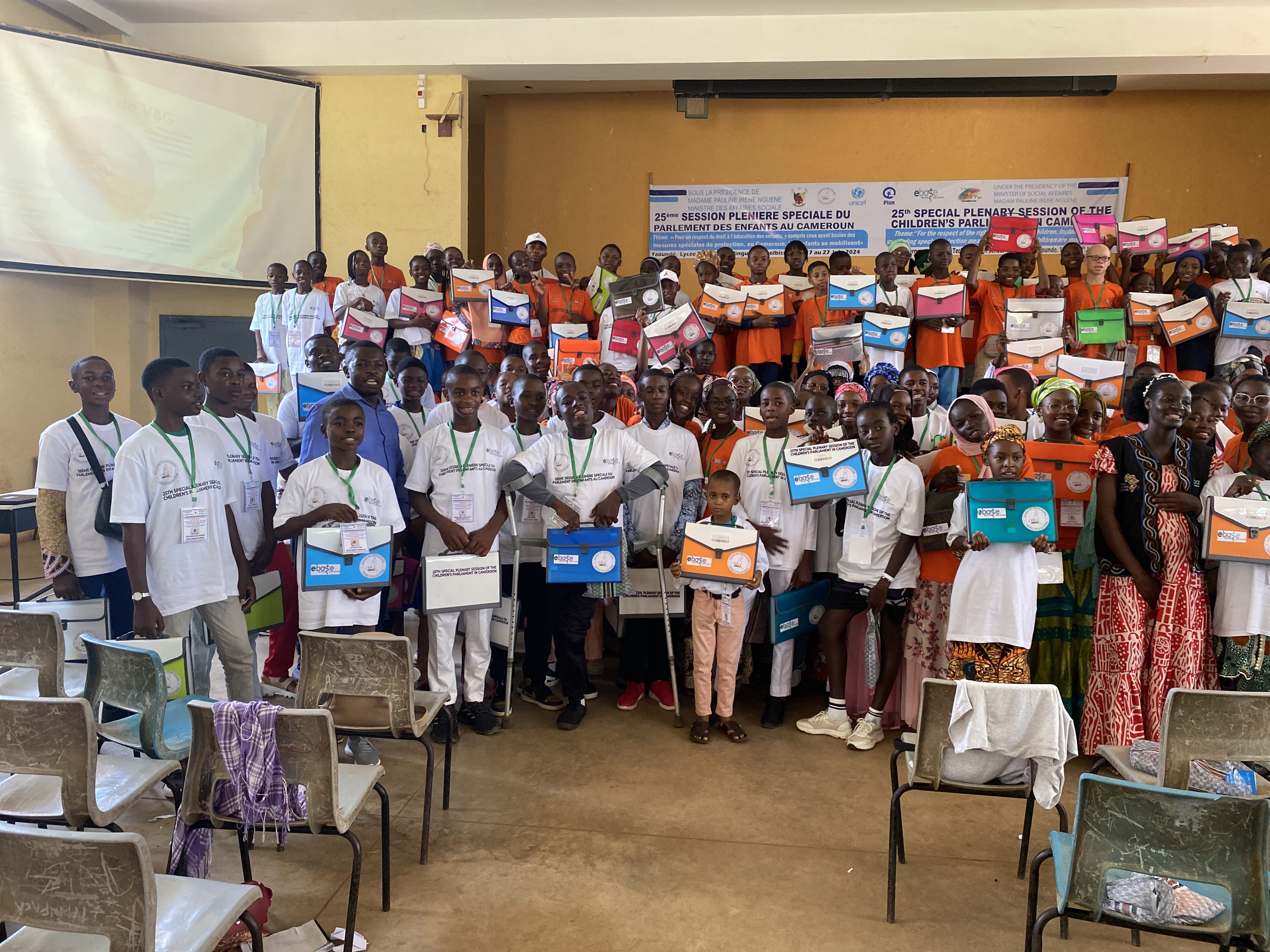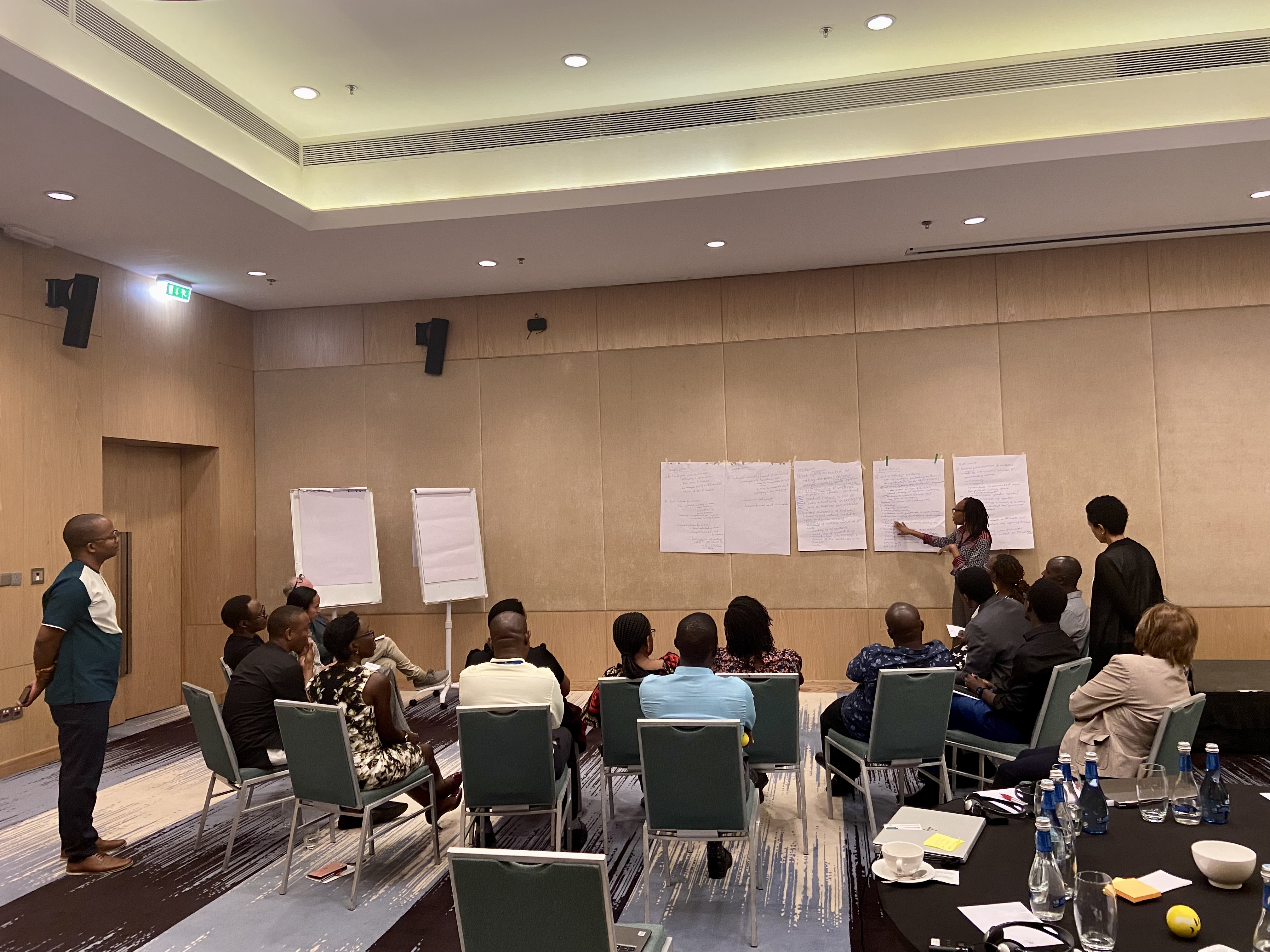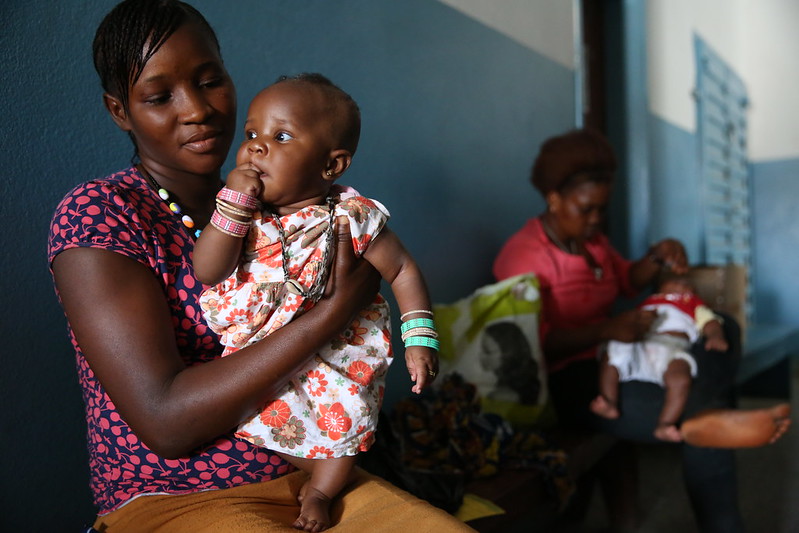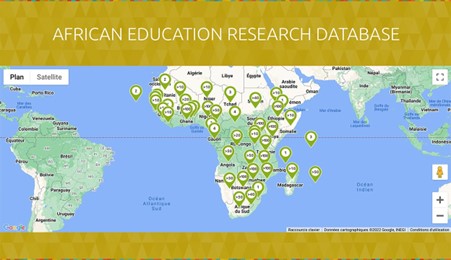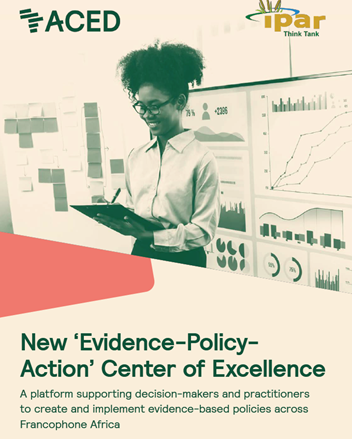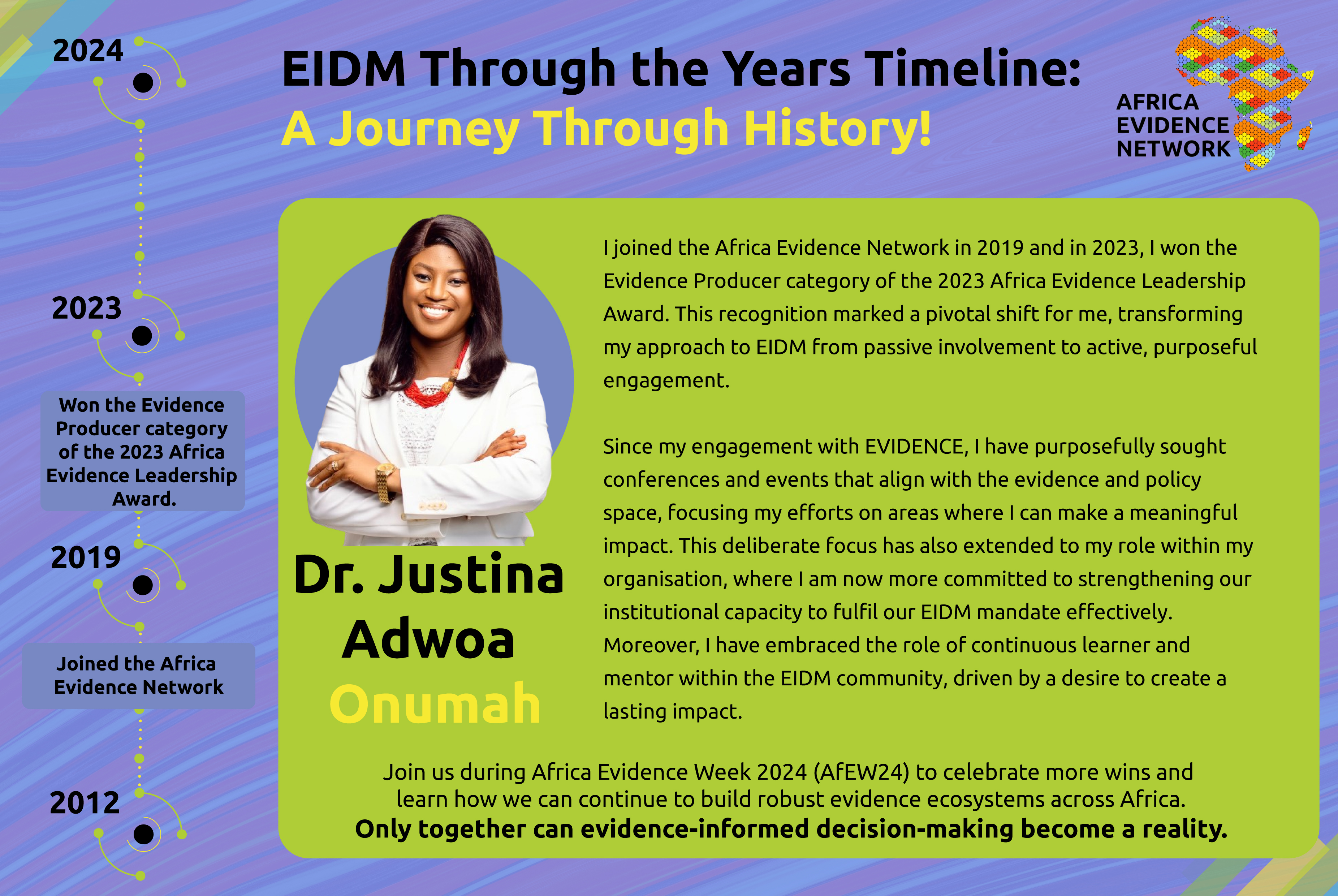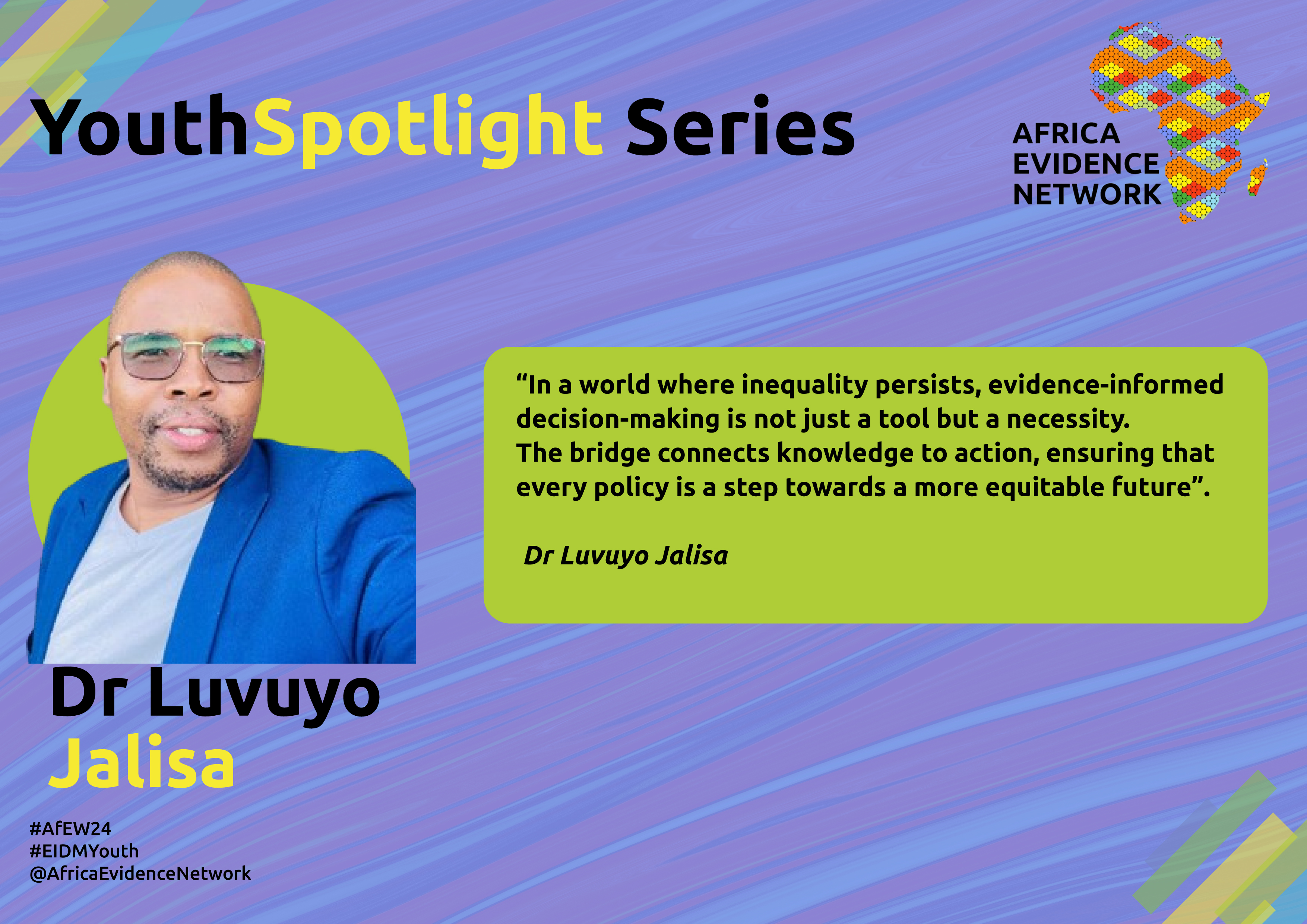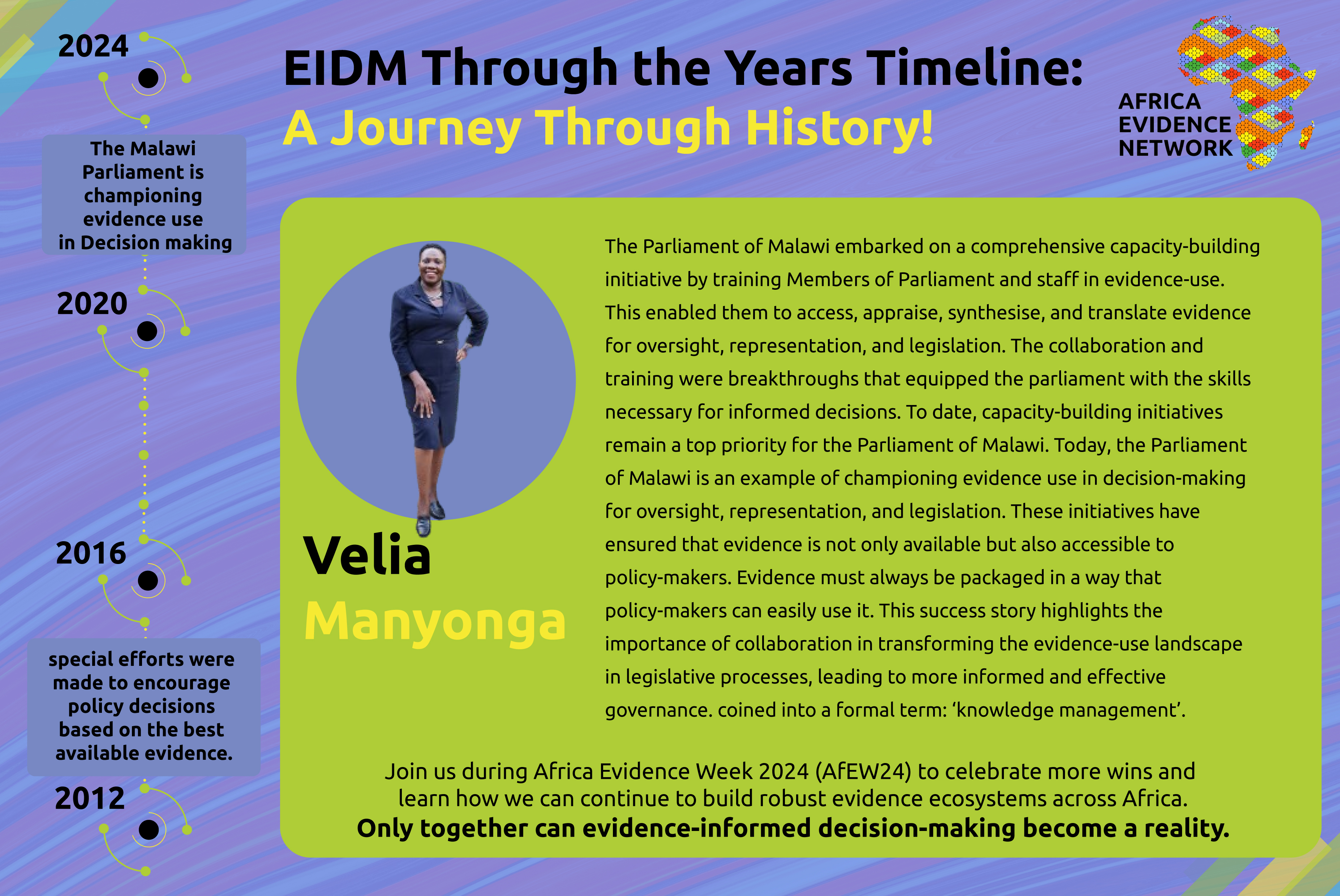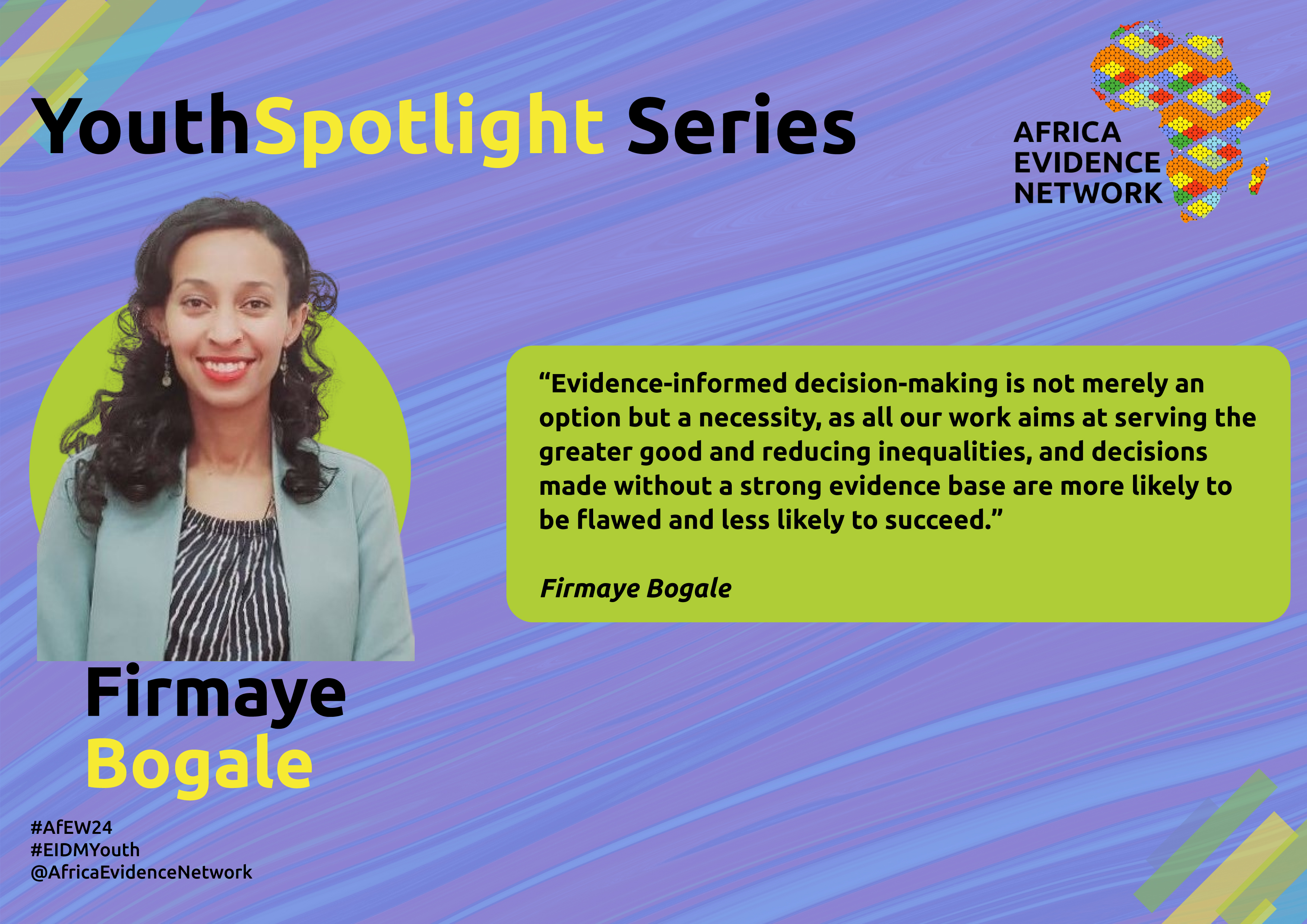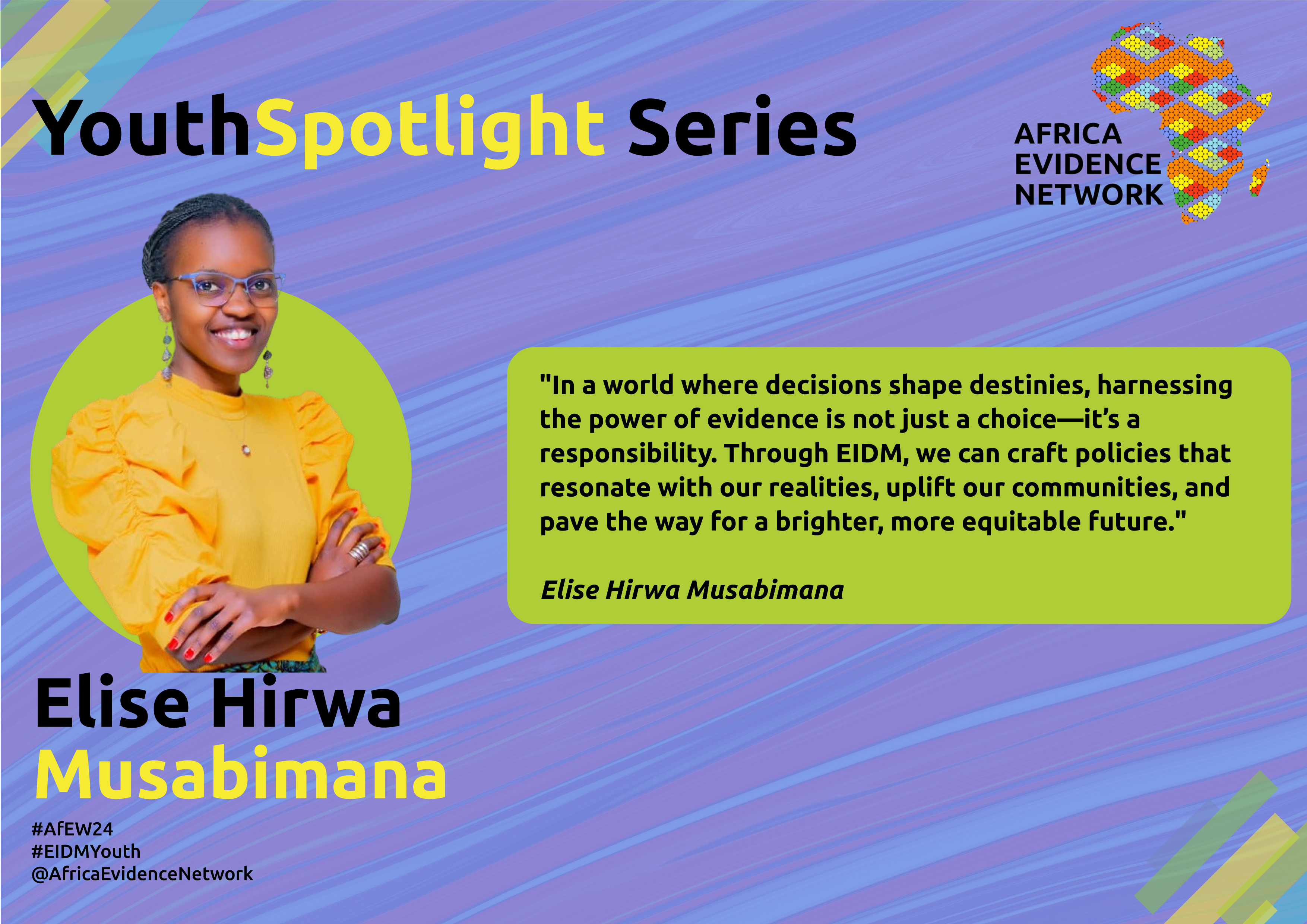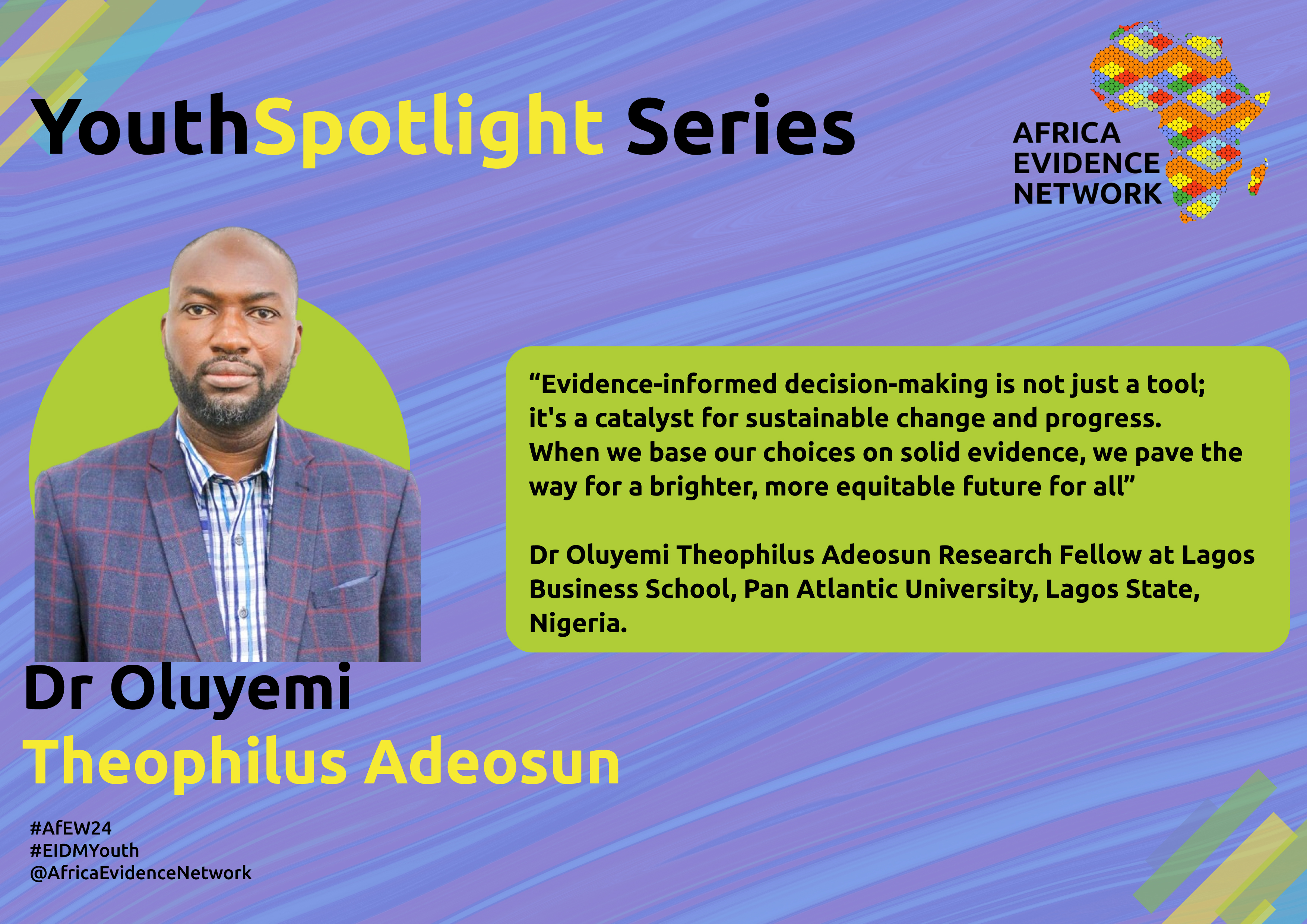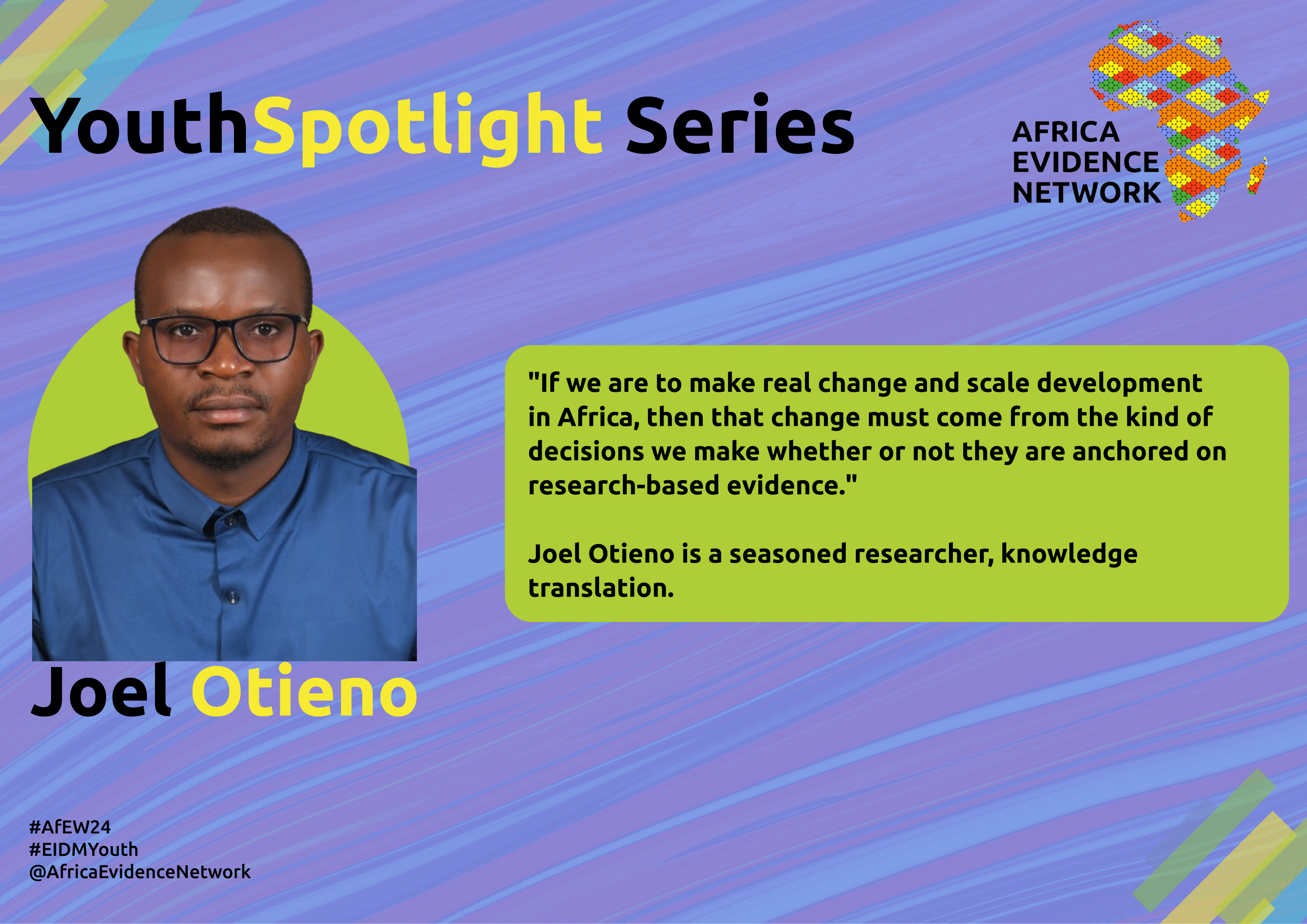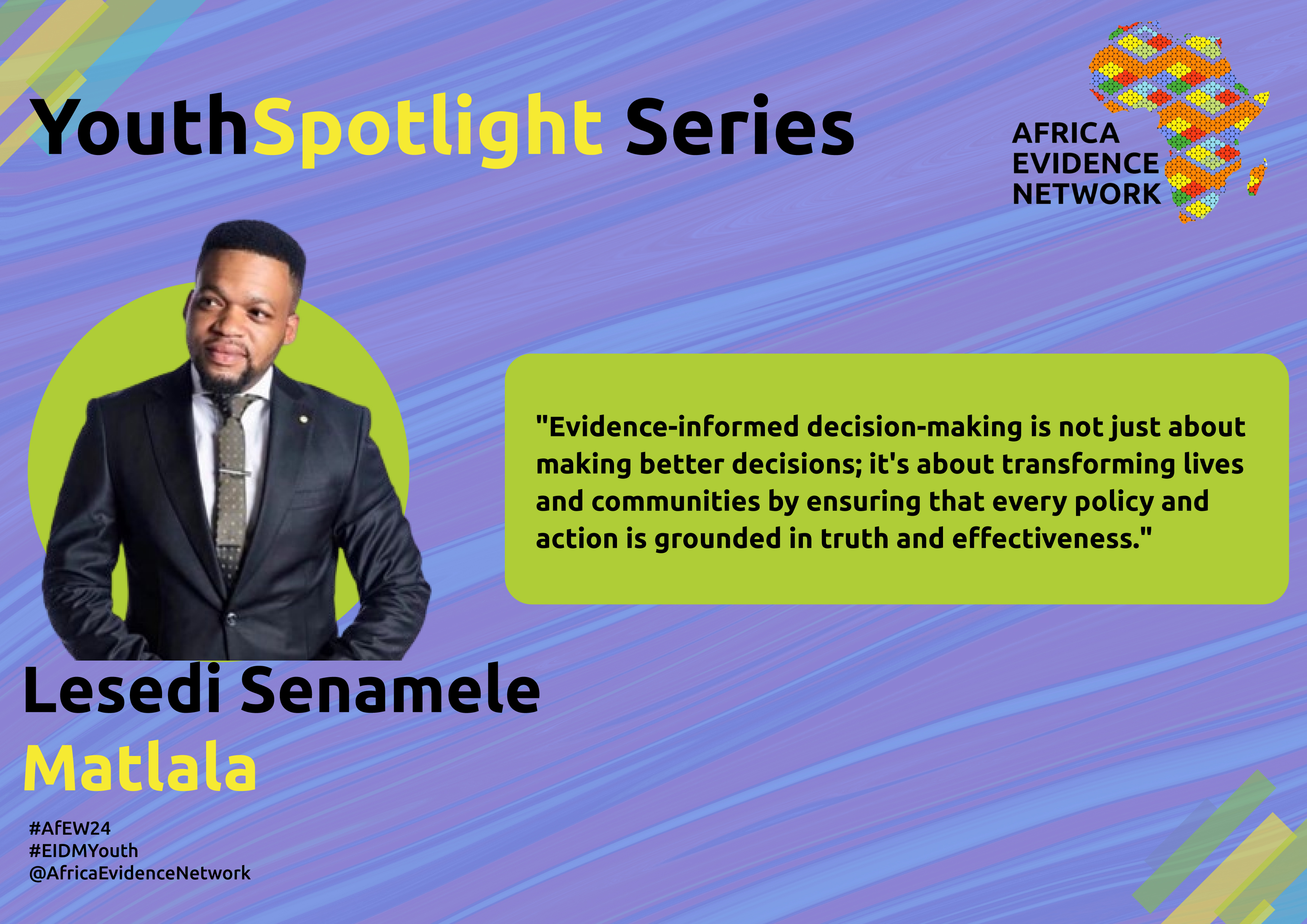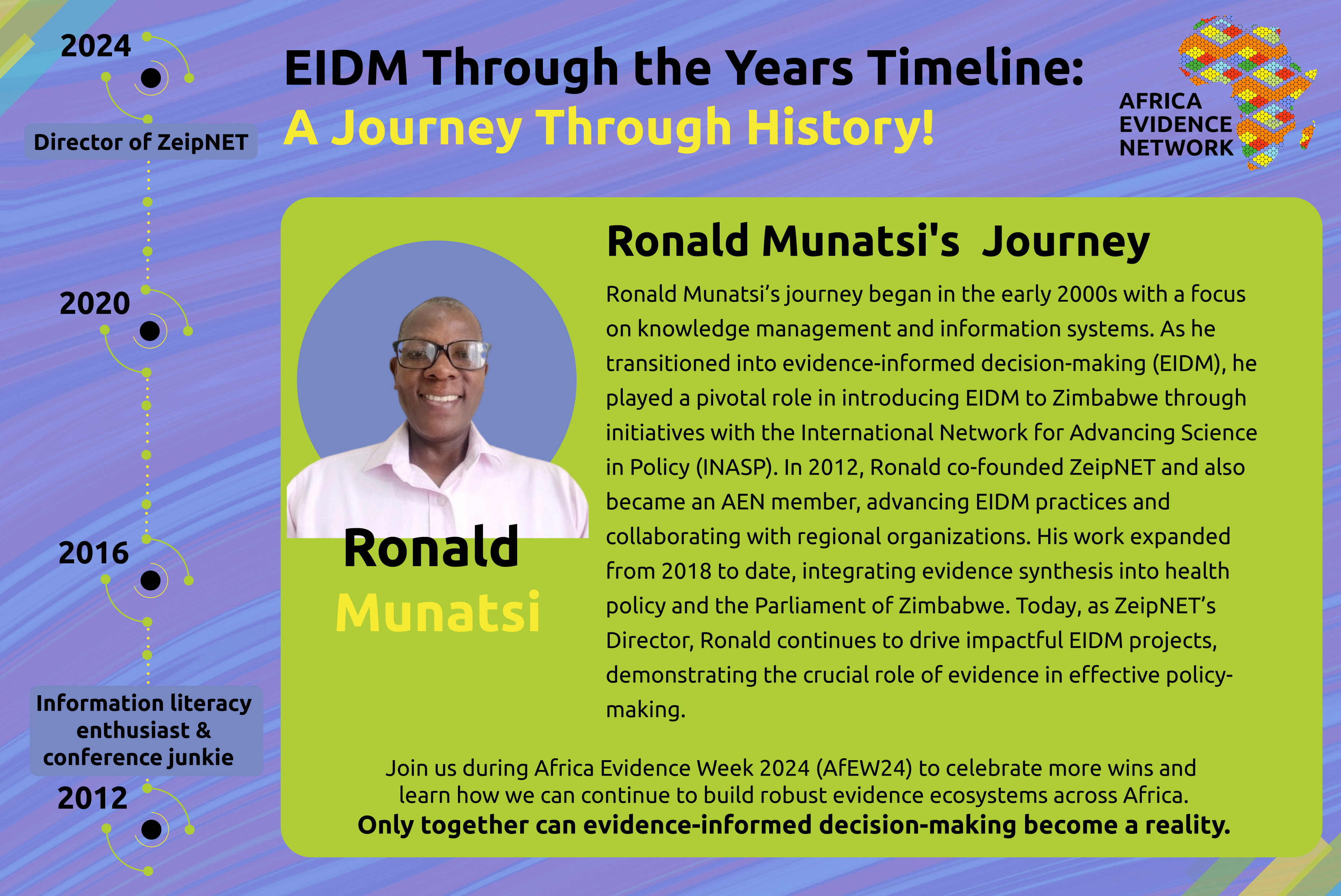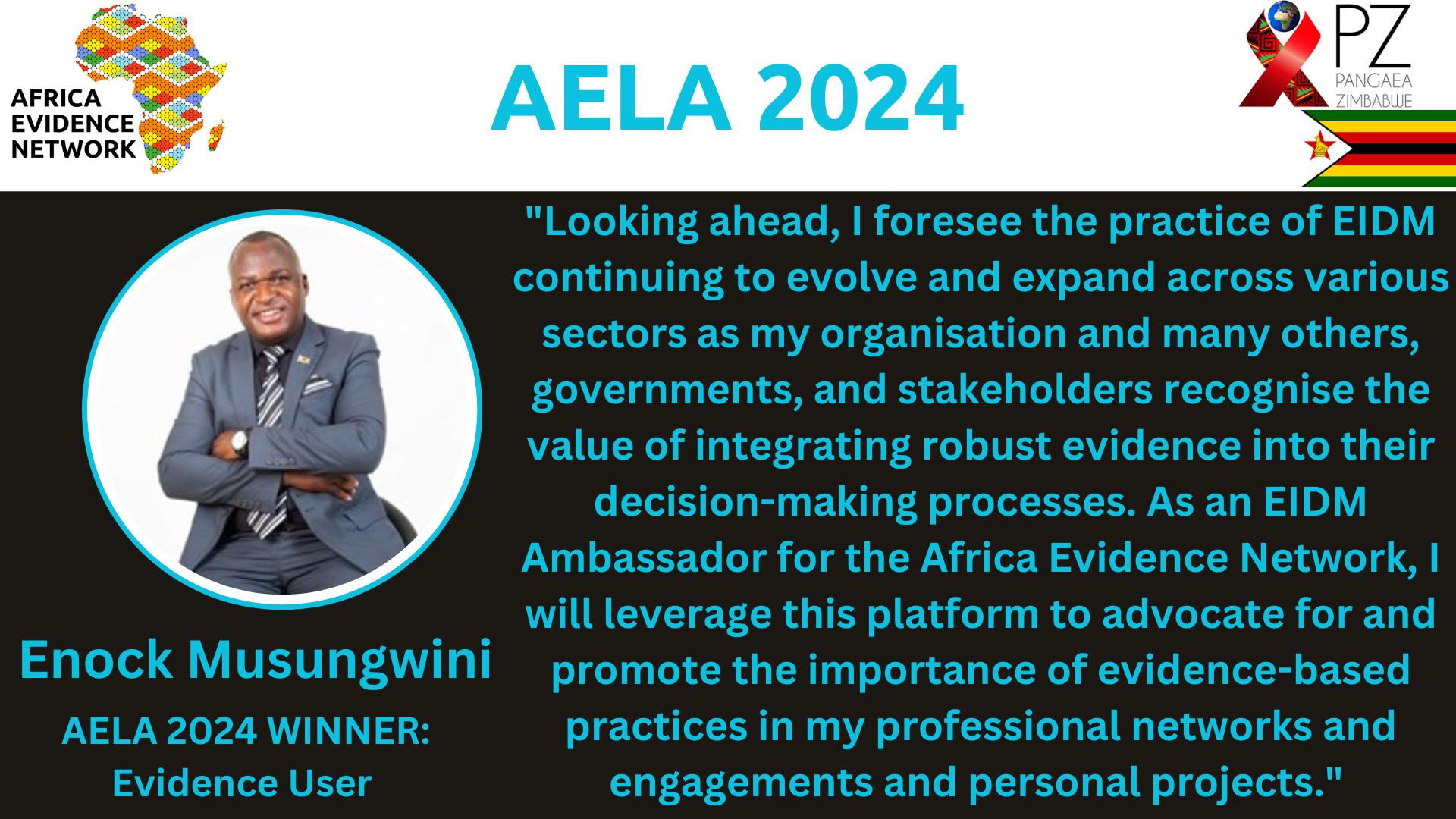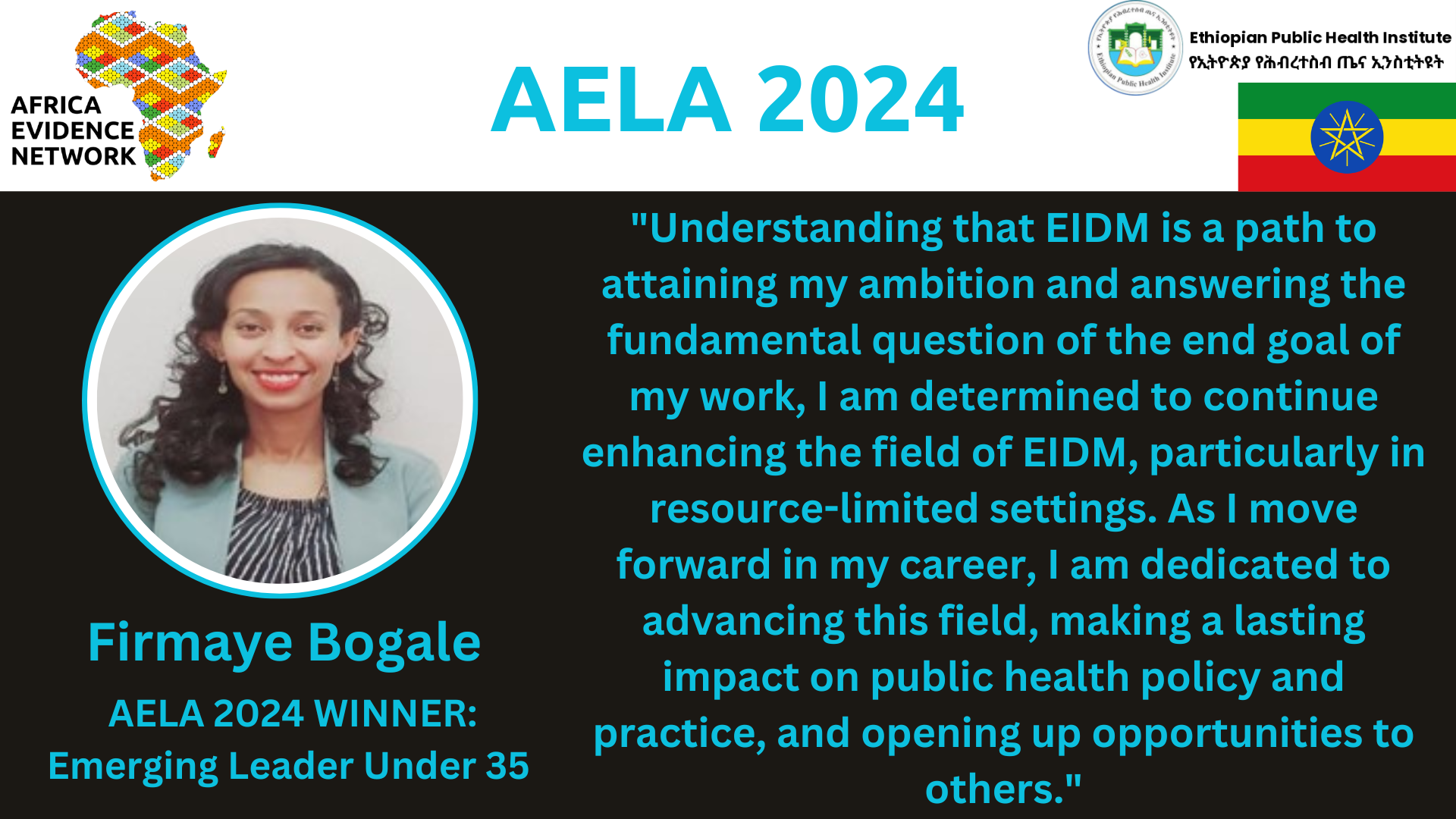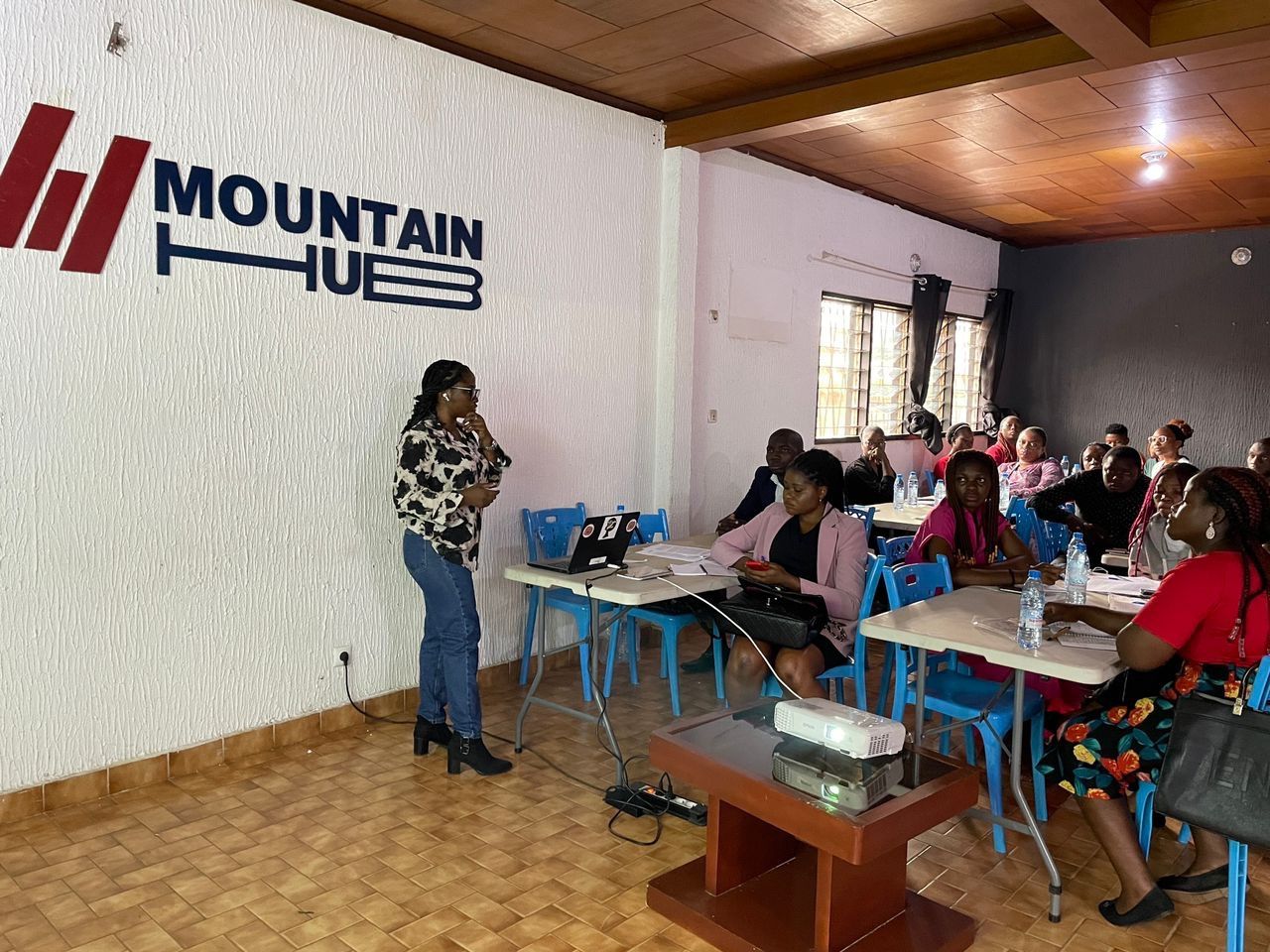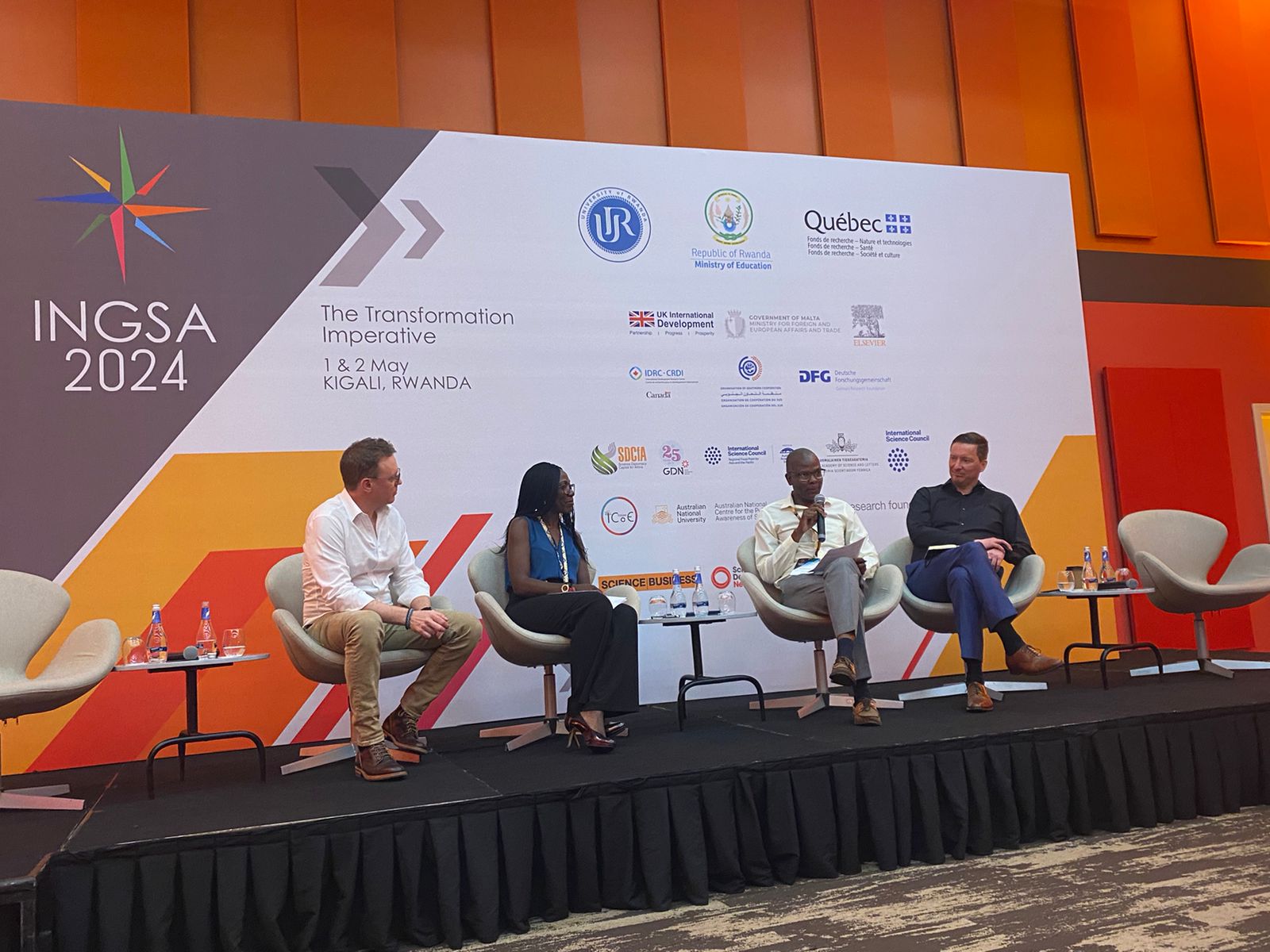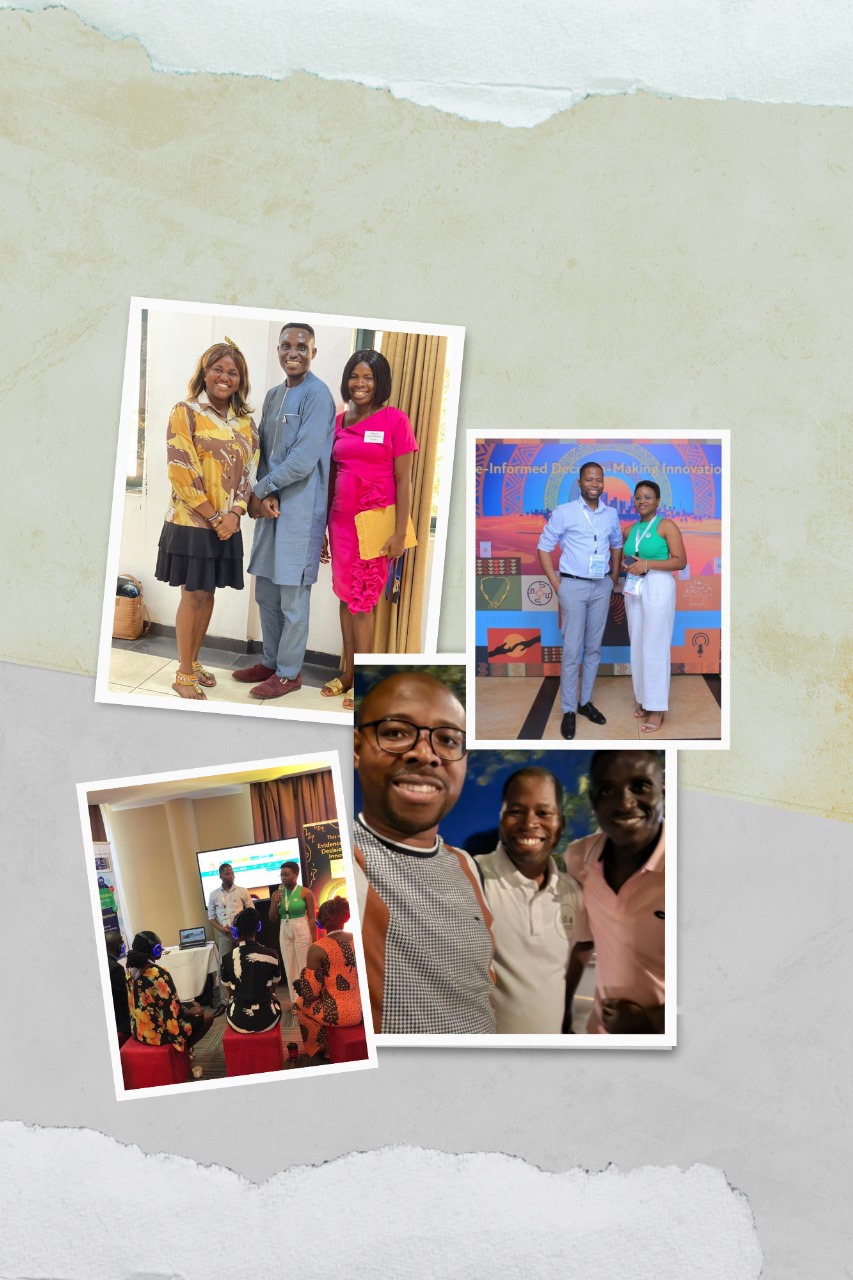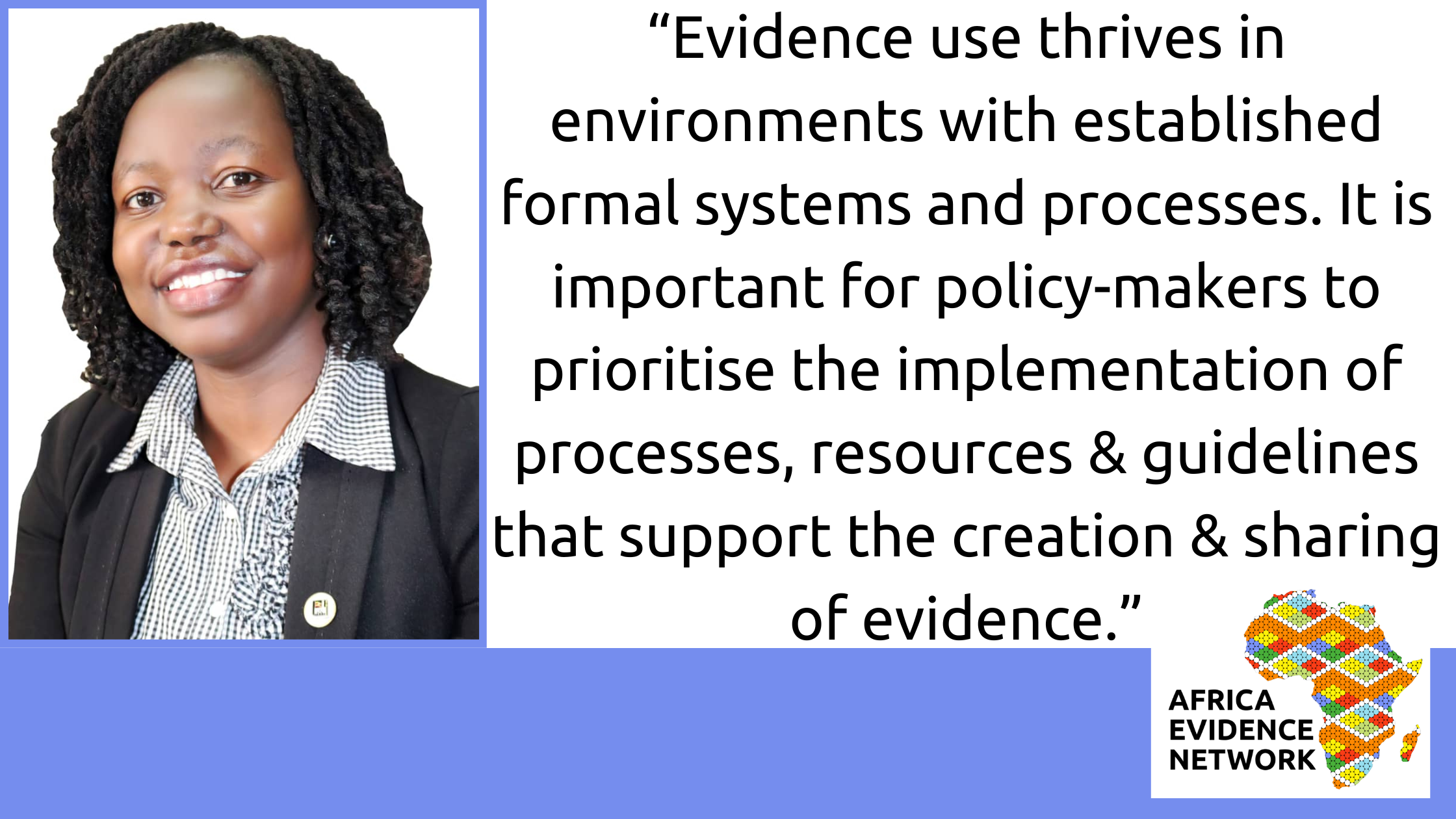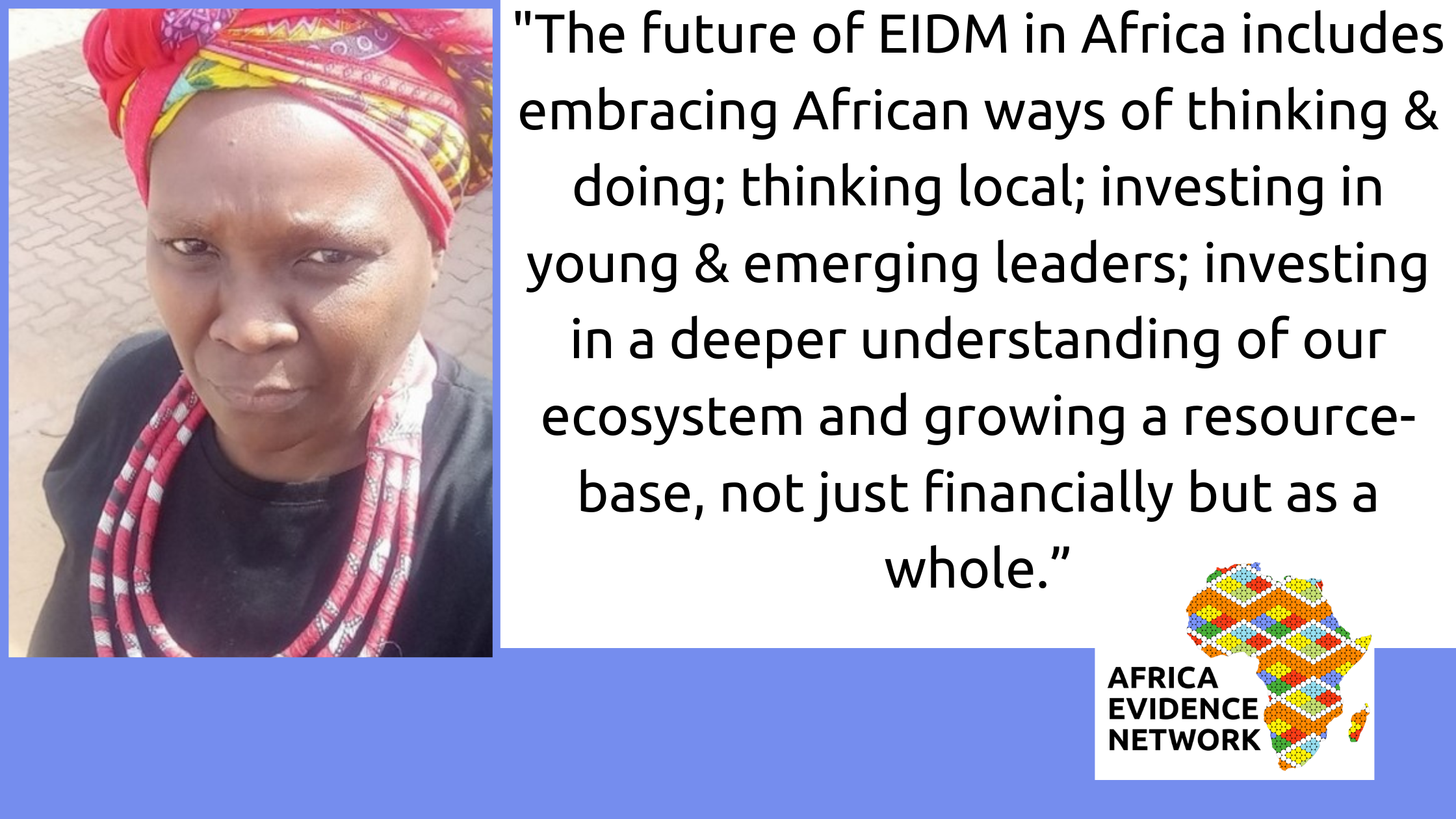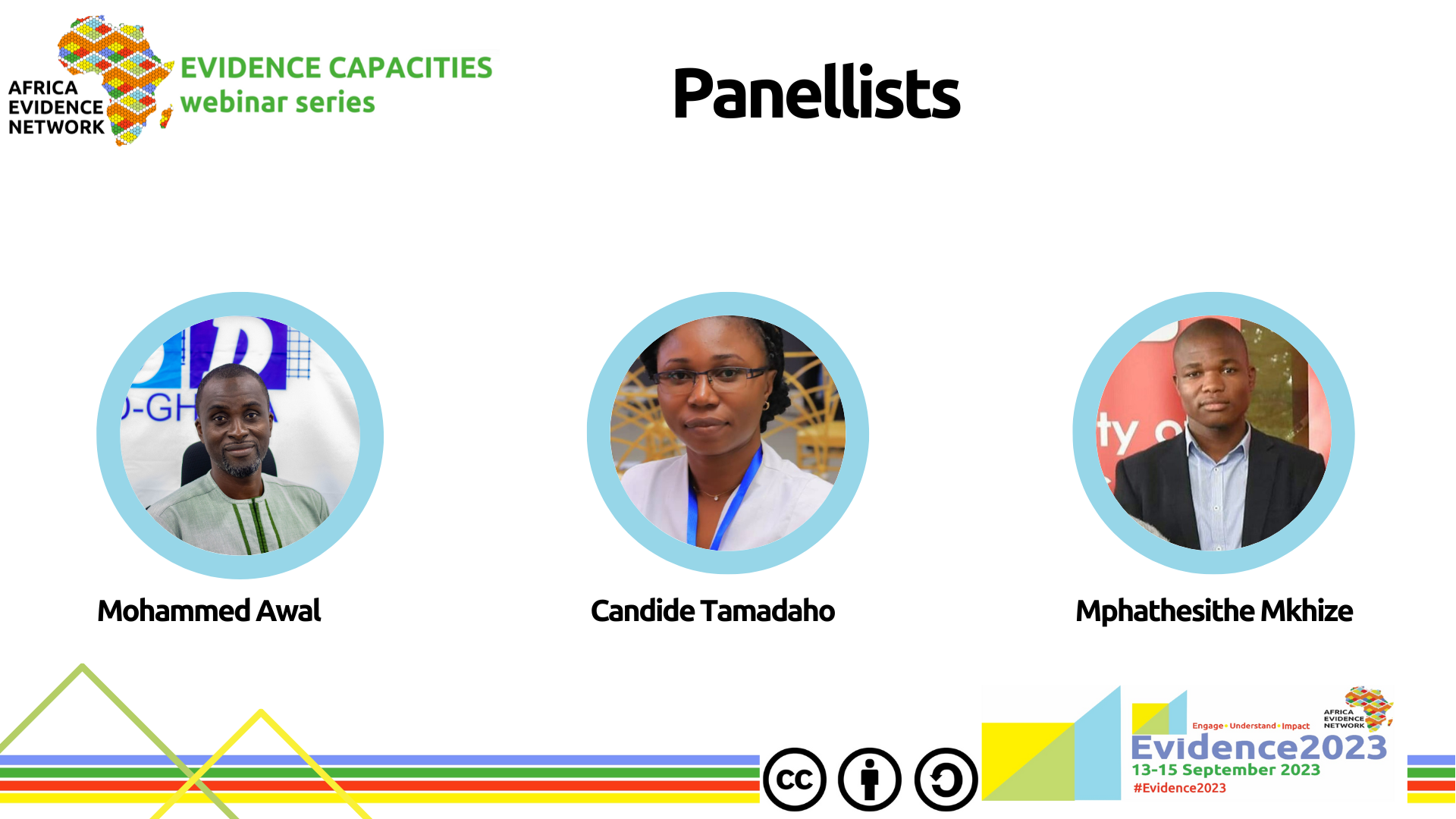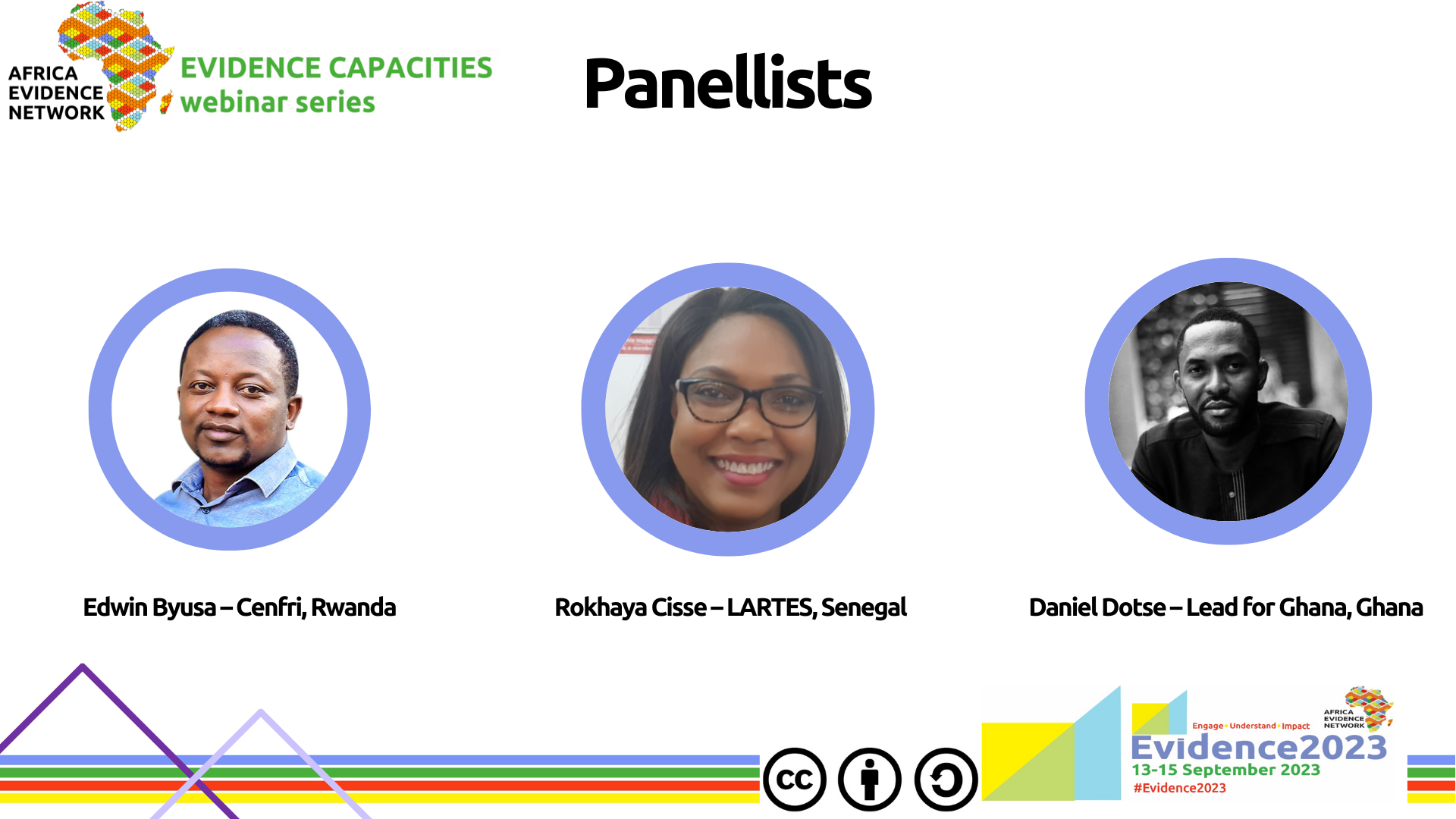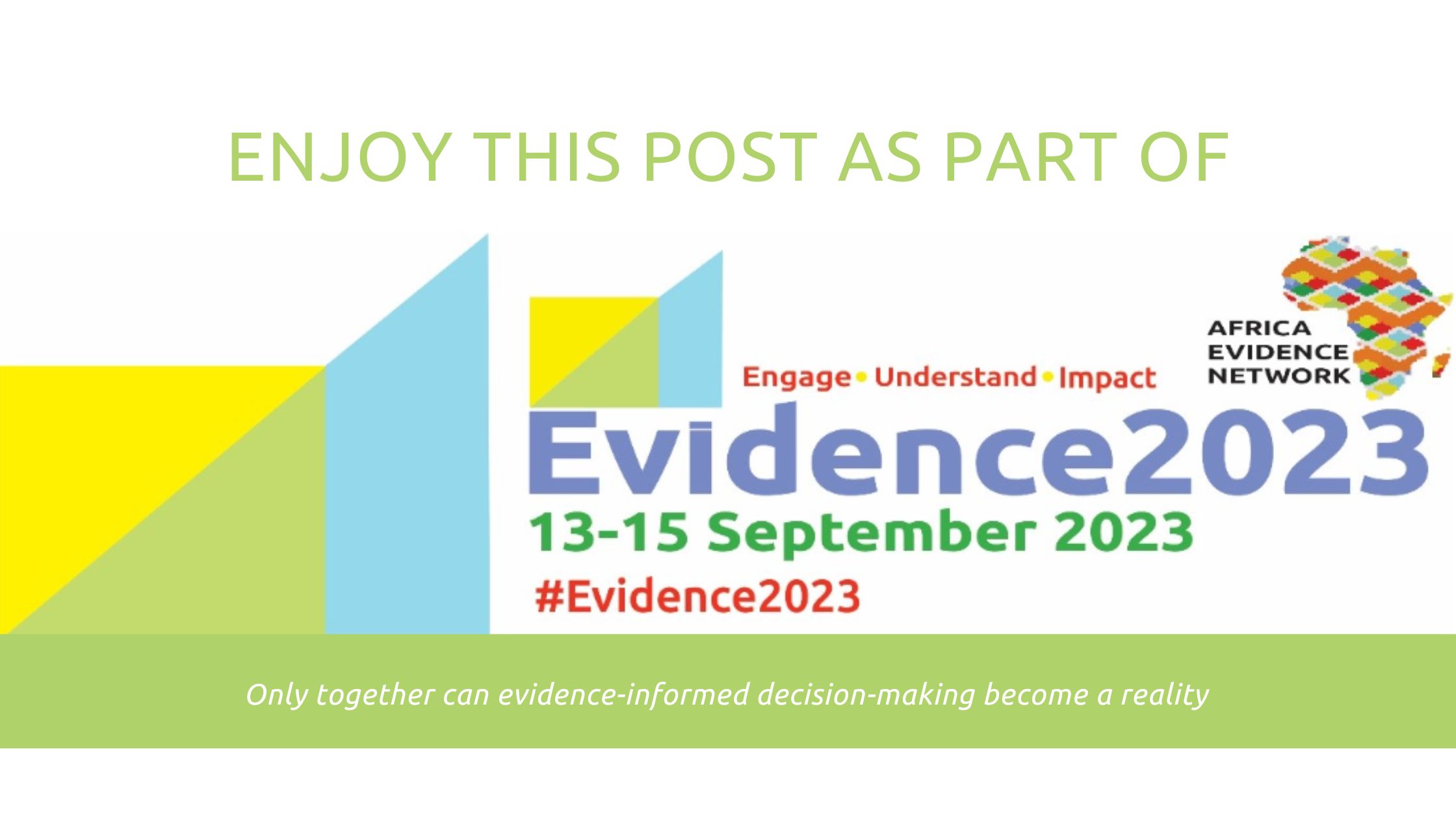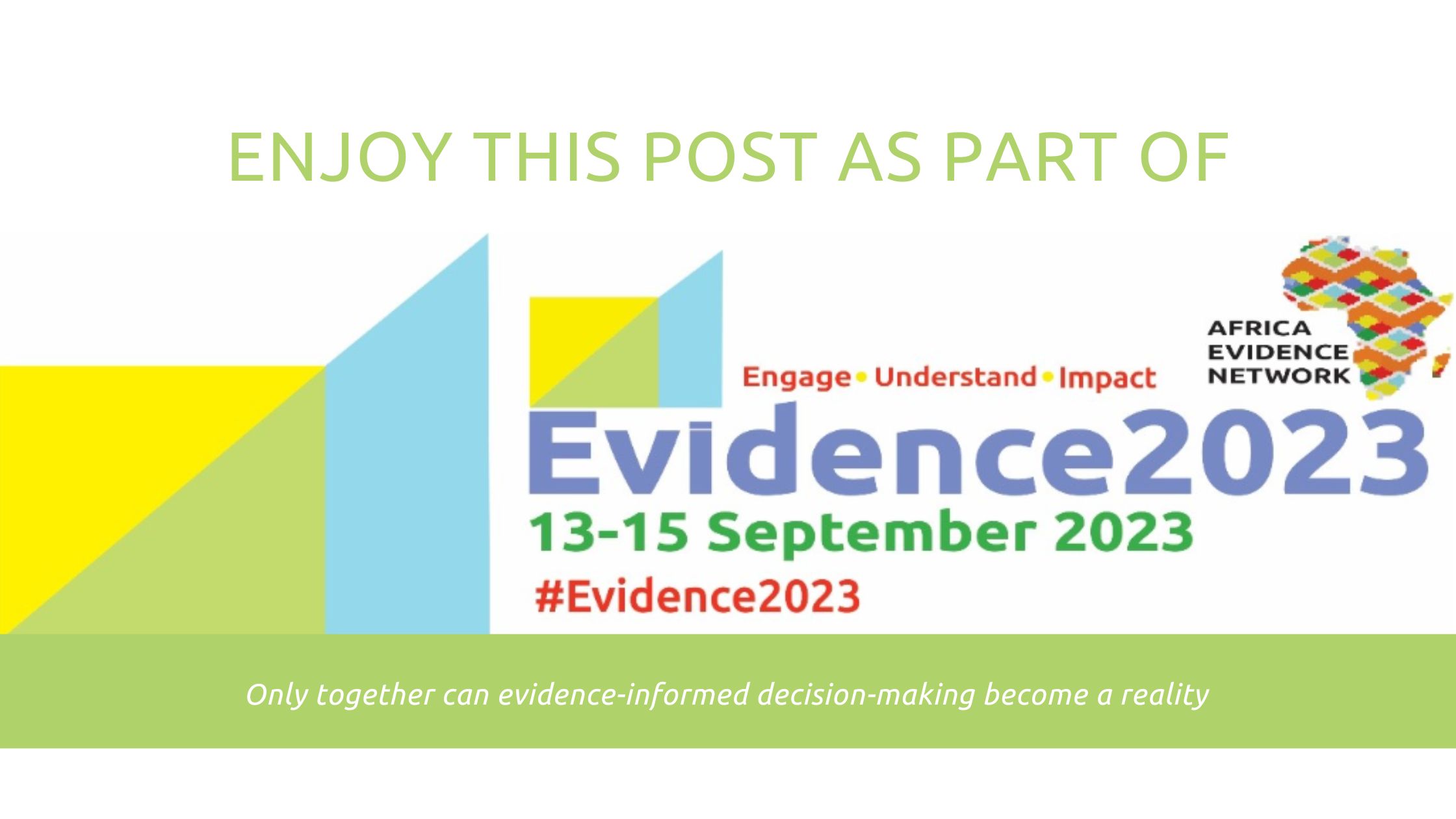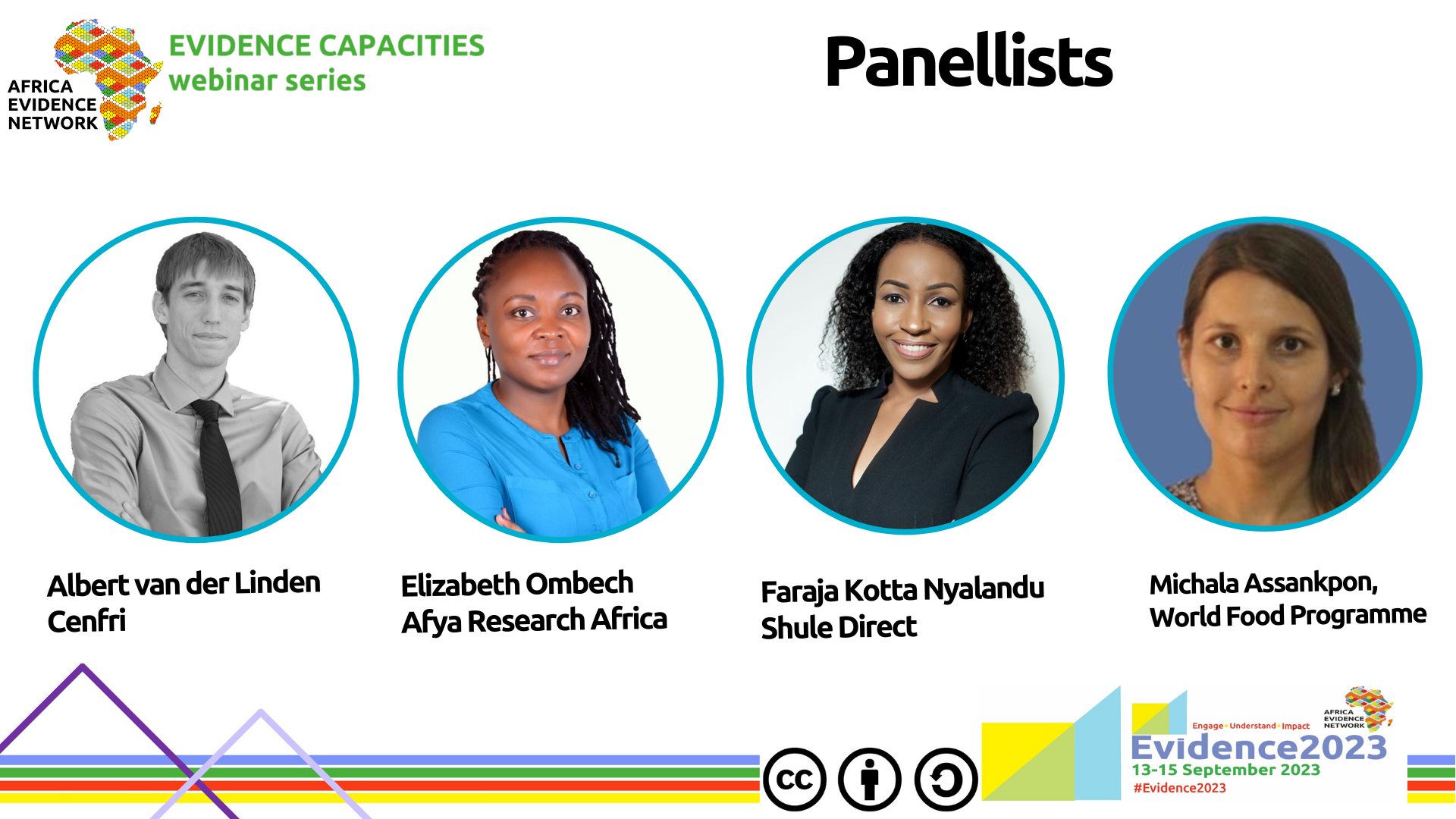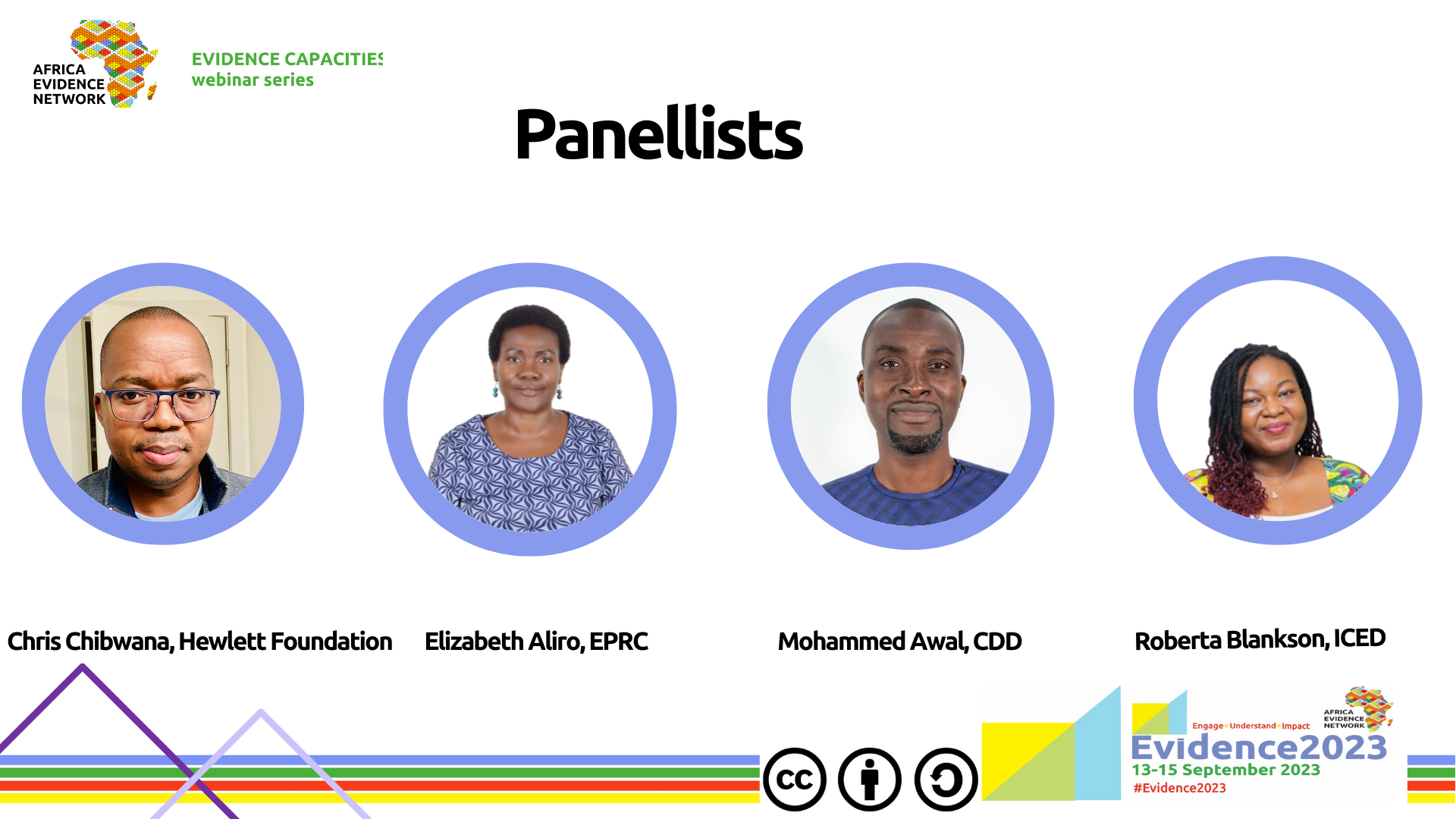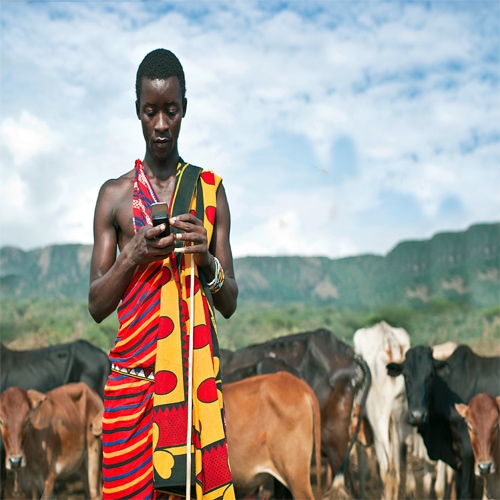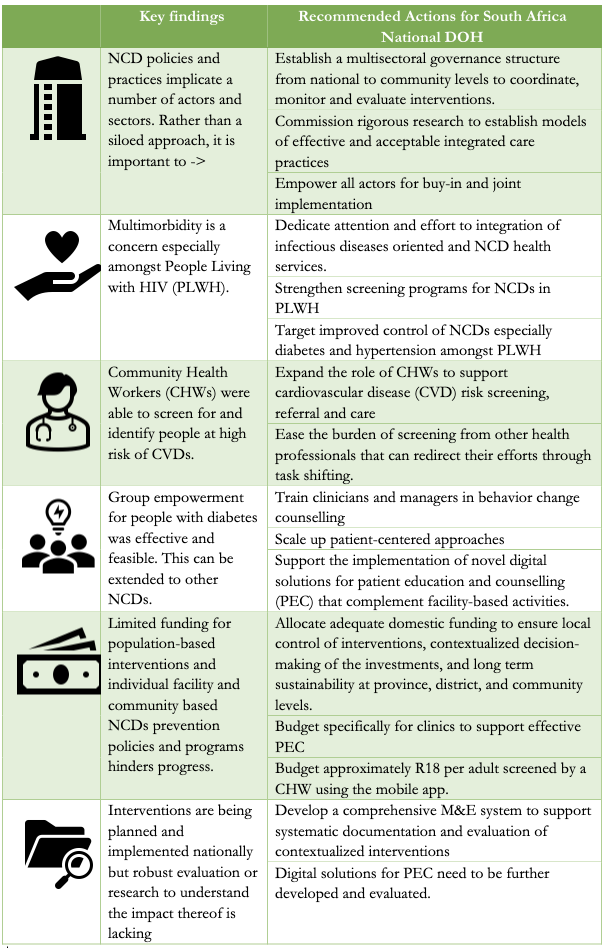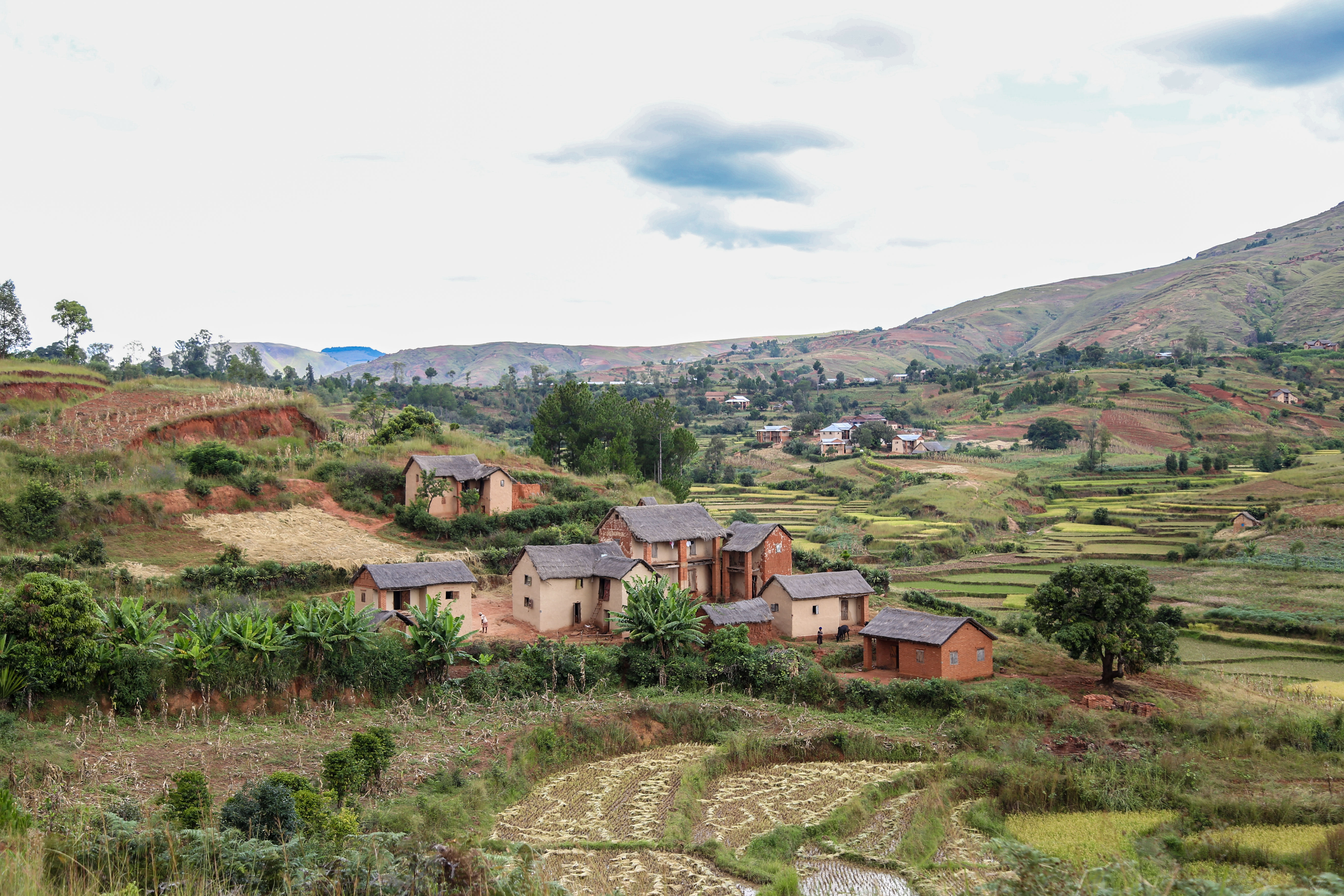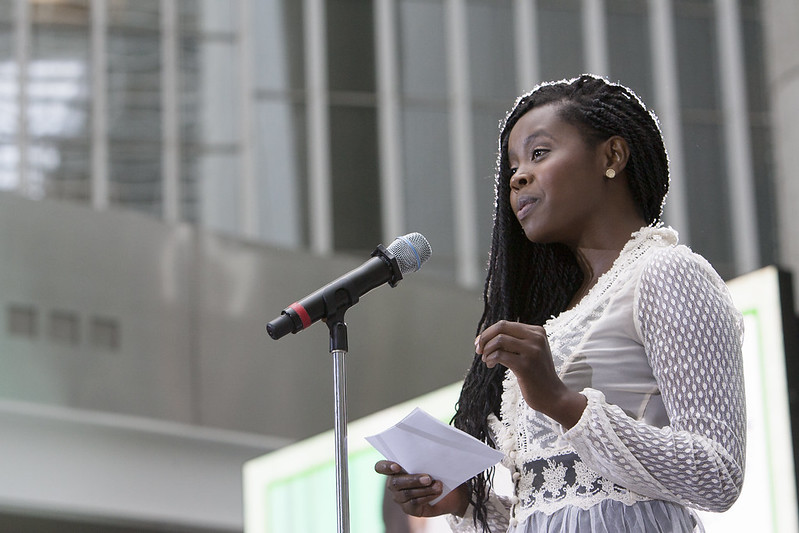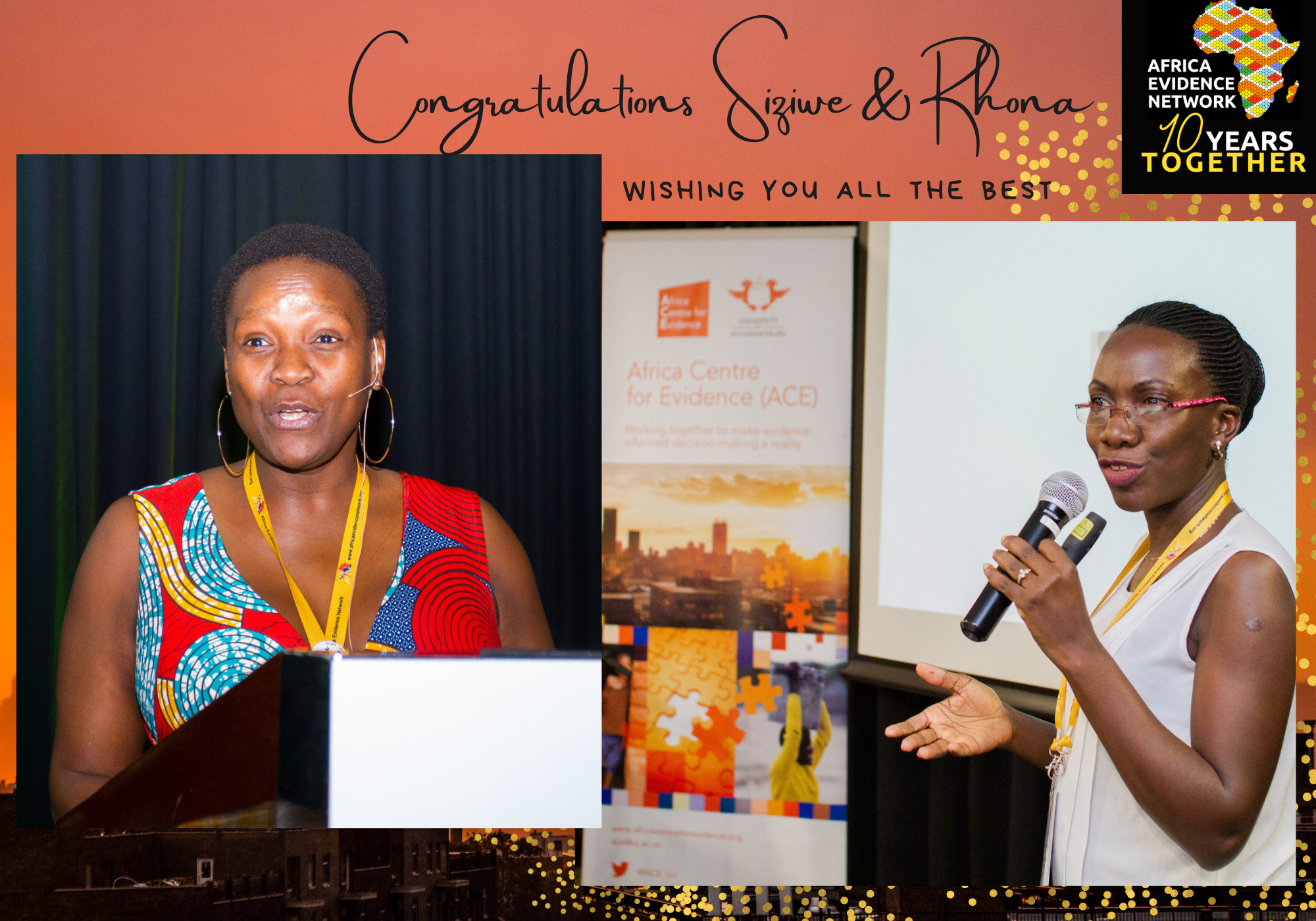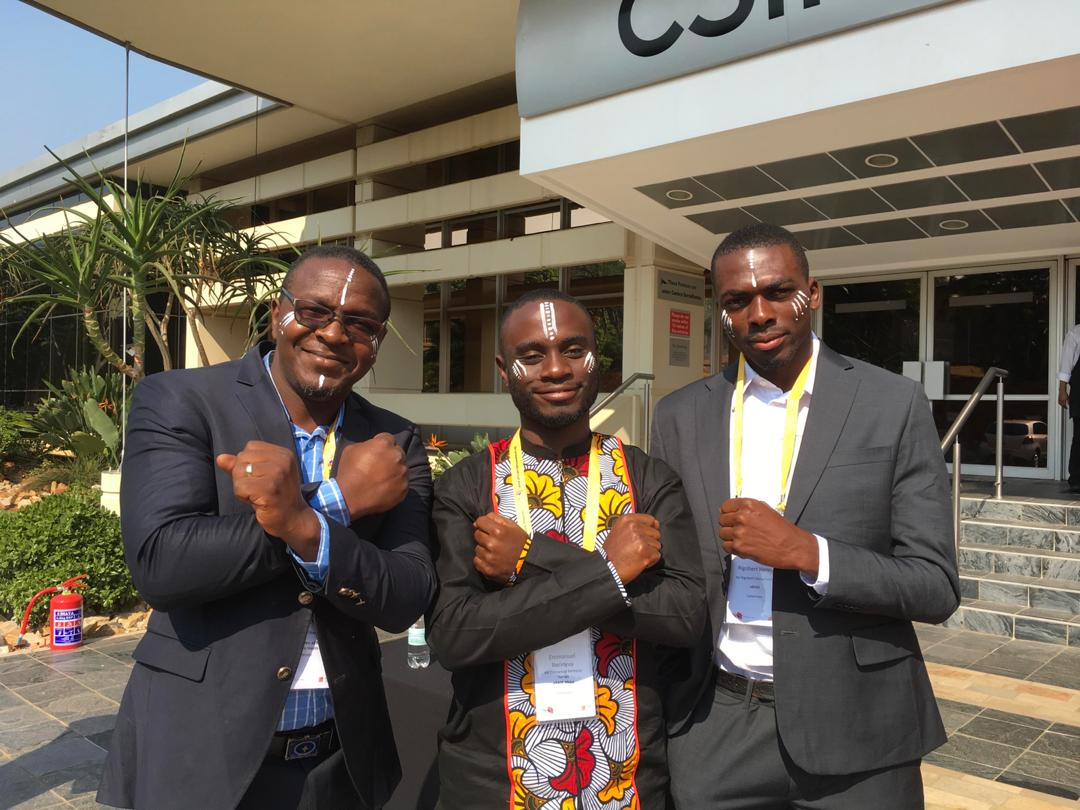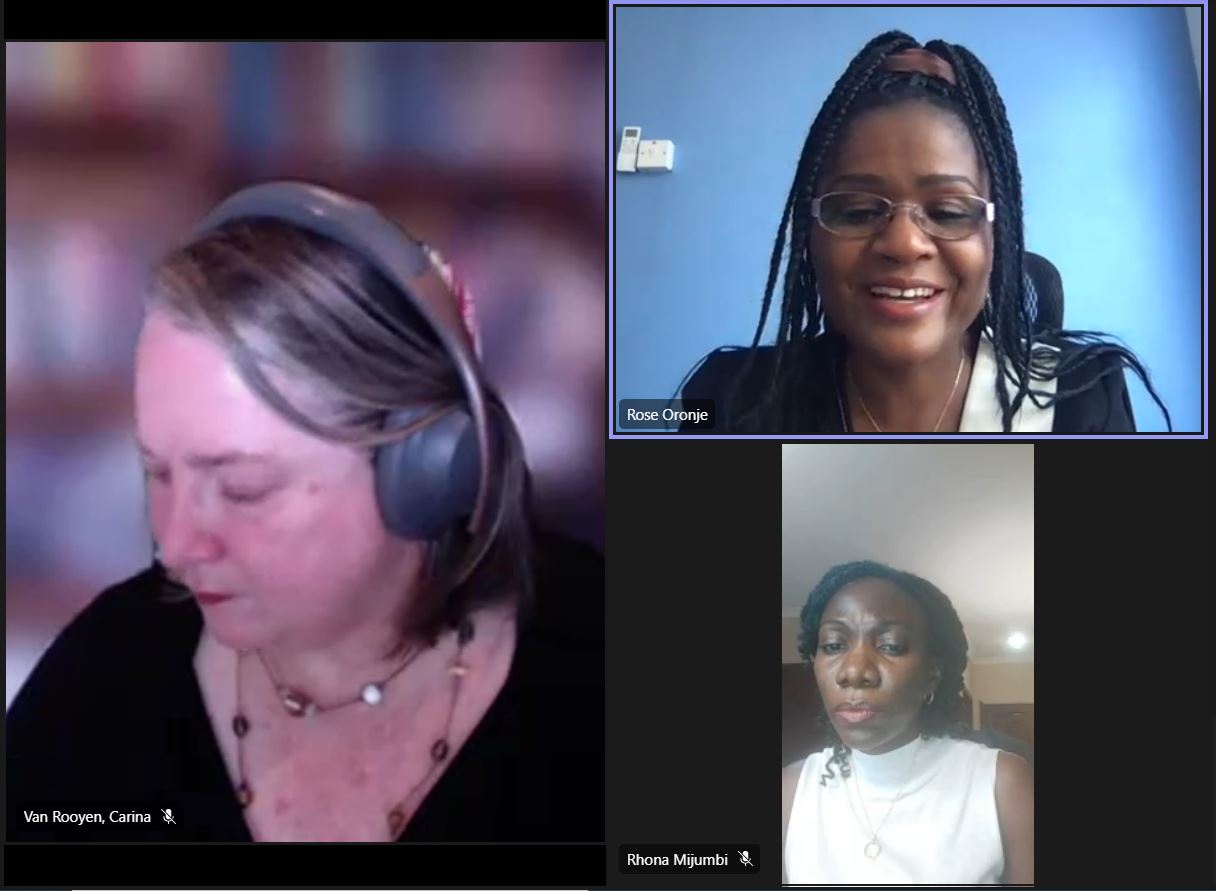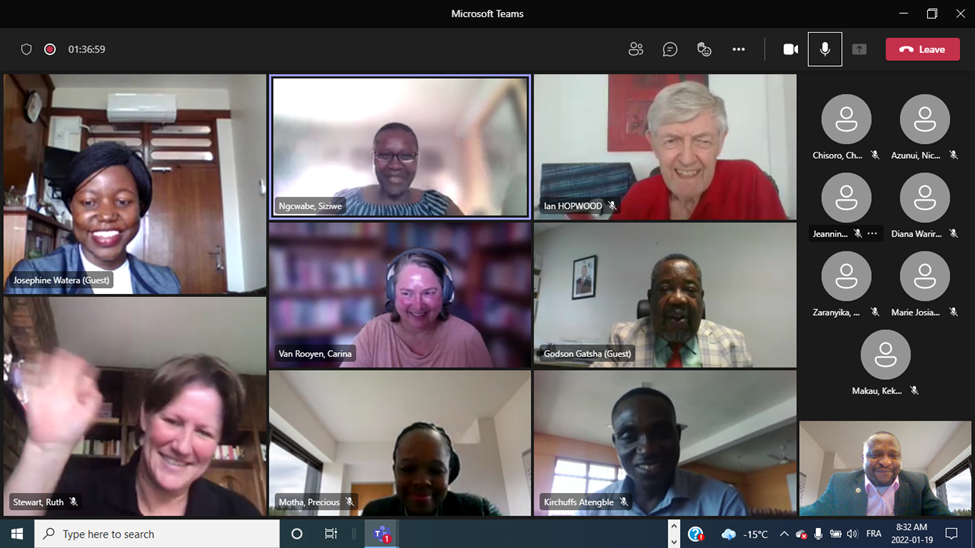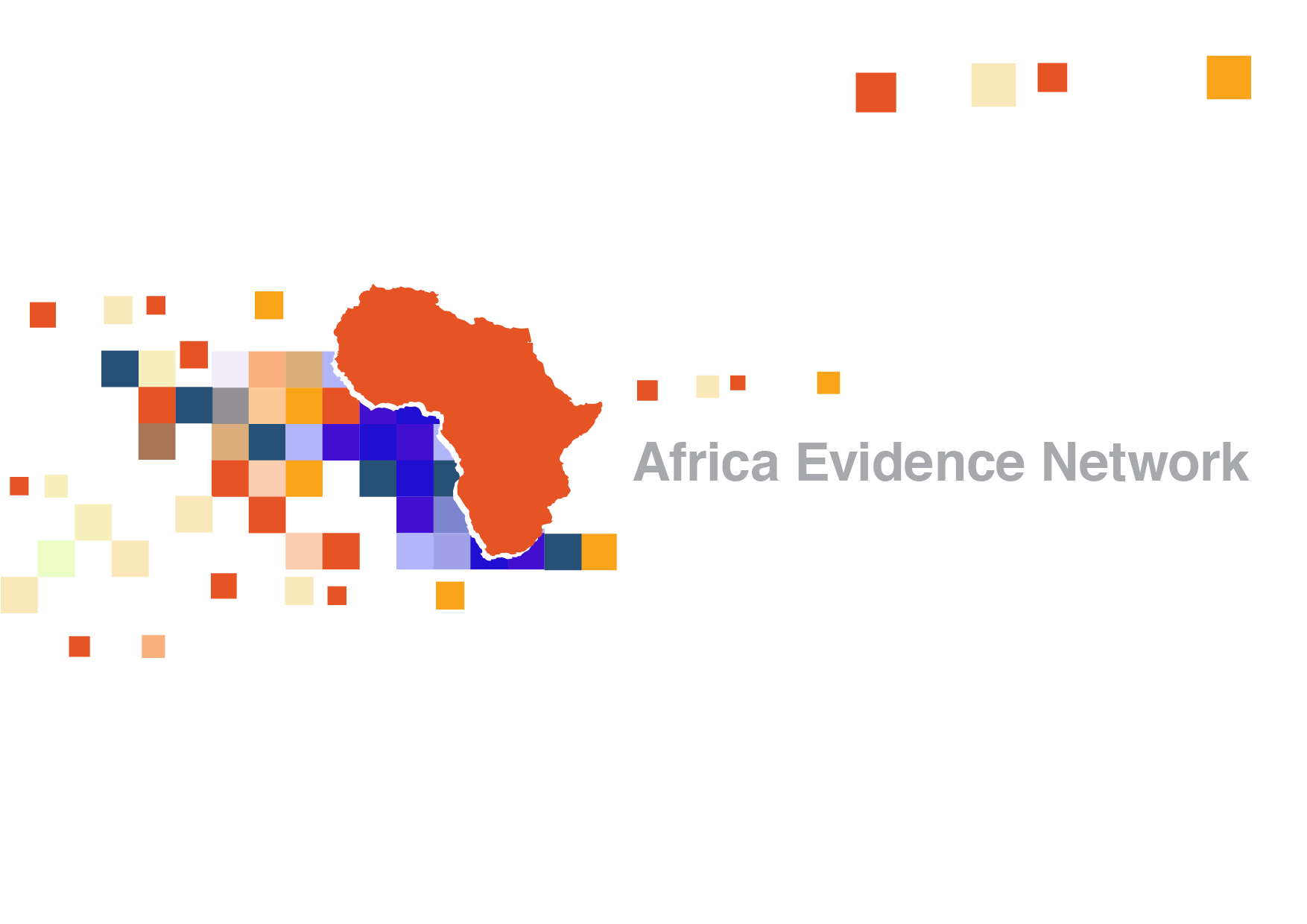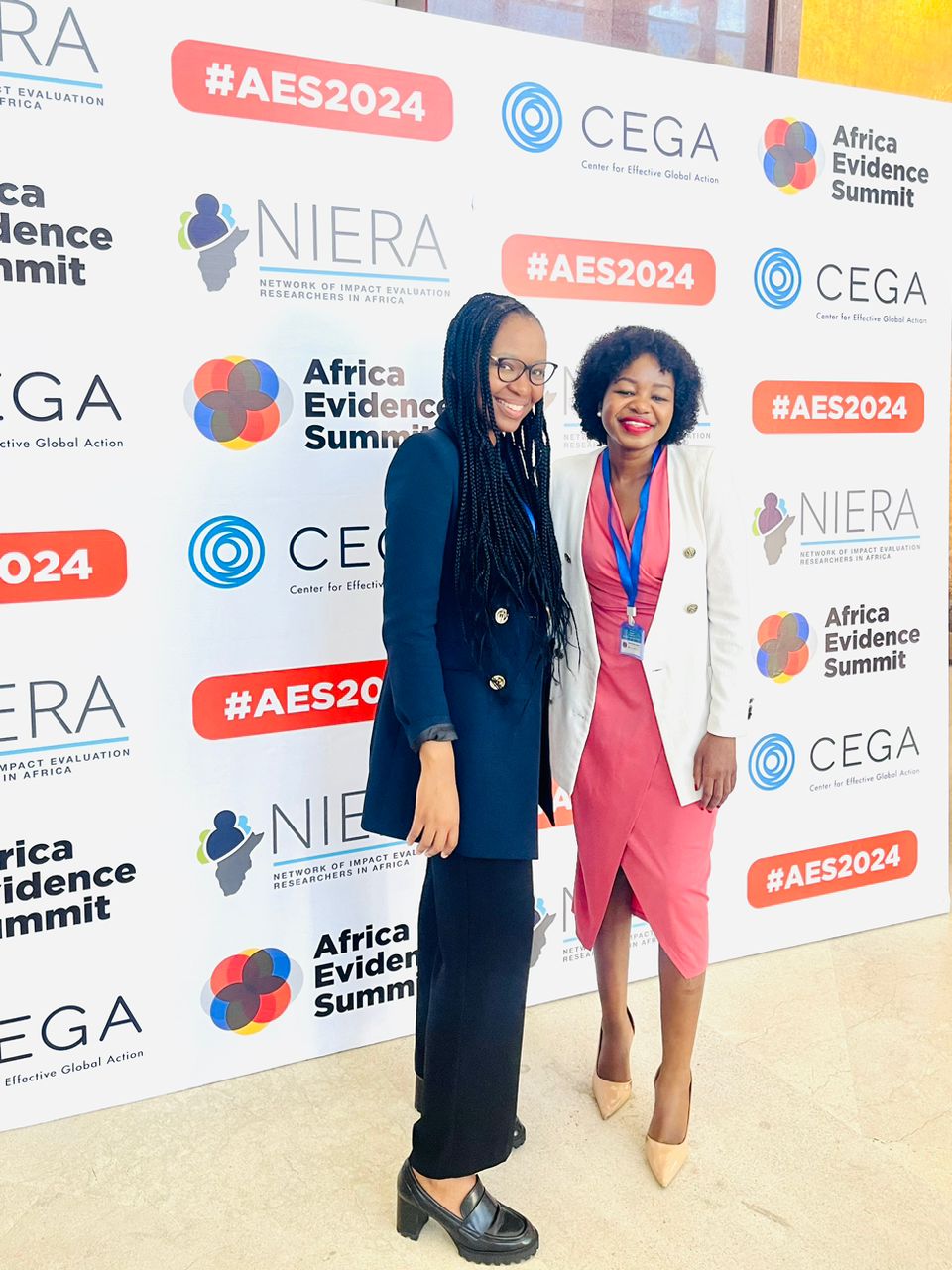
The Africa Evidence Summit, an annual in-person gathering, brings together East and West African scholars (including CEGA fellows), U.S.-based faculty, policymakers, and practitioners to discuss the latest research findings on economic development and poverty alleviation in East and West Africa. This year, the summit was held at the Julius Nyerere International Convention Centre in Dar es Salaam, Tanzania, from July 10-11, 2024. I had the privilege of representing the Africa Evidence Network (AEN) and the Africa Evidence Youth League (AEYL) alongside Andile Madonsela. The event fostered vibrant discussions on integrating evidence into decision-making processes, elevating African scholars' voices, and engaging stakeholders.
The 12th annual Africa Evidence Summit was organised by the Center for Effective Global Action (CEGA) and the Network of Impact Evaluation Researchers in Africa (NIERA), hosted in partnership with the African Population and Health Research Center (APHRC). Other partners included the Economic and Social Research Foundation (ESRF), the Mawazo Institute, Twaweza, and the Global Poverty Research Lab (GPRL).
Main Takeaways
- Keynote Address: Evidence to Impact in Tanzania
Mr. Adolf Mkenda, the Minister of Education, Science, and Technology in Tanzania, posed a critical question: "What is the place of evidence in this era?" Reflecting on various developmental agendas that impact youth, I pondered how extensively evidence is being utilised in decision-making.
- Preparing for an Aging Africa: Data-Driven Priorities for Economic Research and Policy
Edward Miguel, the founder of CEGA, highlighted four crucial facts in his paper:
- Sub-Saharan Africa is ageing rapidly, but favourable dependency ratios may help the region meet new challenges.
- Health and pension institutions are currently unprepared for the ageing population's needs.
- Older populations may be especially vulnerable to climate change.
- Socio-cultural contexts may affect population ageing in unexpected ways.
Miguel emphasised the need to build research infrastructure to generate Sub-Saharan Africa-specific evidence. Considering the expected population growth in Sub-Saharan Africa, it is imperative to create policies that harness the potential of the increasing youth population.
- Smart Classrooms and Education Outcomes: Evidence from Rwanda
Muthoni Nganga and Aimable Nsabimana presented policy recommendations on integrating ICT into learning:
- Integration of ICT in classrooms requires time for impact.
- Exposure to smart classrooms is more beneficial for young students.
- Smart classrooms reduce existing gender gaps in learning.
These recommendations underscore the need for ministries of education in Sub-Saharan Africa to redesign national digital education strategies. The Ministry of Education, Science, and Technology in Tanzania recently presented the first draft of its strategy, demonstrating a positive step forward.
- Artistic Pathways for Youth Employment
Amos Njuguna, the founding programme manager at NIERA, discussed a project aimed at empowering youths aged 18-35 in the creative sector. The project helps youths harness their potential and earn a sustainable income, reducing youth unemployment. Given the technological advancements and the rise of digital content creators, replicating this project in other countries could be highly beneficial.
The summit provided an excellent opportunity to connect with various AEN members and stakeholders in the evidence ecosystem. These interactions are crucial for fostering collaboration and driving impactful initiatives. The AEN plays a crucial role in fostering connections between researchers, policy-makers, and practitioners to promote the use of evidence in decision-making processes.
What Can AEN Members Do?
- Engage in Collaborative Research:
- AEN members should actively participate in collaborative research projects that address pressing issues such as poverty alleviation, economic development, and education. By pooling resources and expertise, we can generate robust evidence that informs policy and practice.
- Promote Capacity Building:
- Providing training and mentorship to early-career researchers and policy-makers will enhance their skills in evidence generation and application. This includes workshops, webinars, and fellowship programmes.
- Advocate for Evidence-Based Policies:
- Engage with policymakers to ensure that research findings are translated into actionable policies. This can be done through policy briefs, consultations, and participation in policy-making forums.
- Enhance Communication and Dissemination:
- Use various platforms, including social media, blogs, and conferences, to disseminate research findings widely. Clear and accessible communication of evidence will increase its impact on policy and practice.
- Foster Youth Involvement:
- Encourage the involvement of young researchers and practitioners in the network. Initiatives like the AEYL provide a platform for youth to contribute to and lead evidence-based initiatives.
The Africa Evidence Summit 2024 was a remarkable event that highlighted the importance of integrating evidence into decision-making processes to address key challenges in Africa. By fostering collaboration, promoting capacity building, advocating for evidence-based policies, enhancing communication, and involving youth, the AEN can significantly contribute to poverty alleviation and sustainable development in the region.
About the author: Gloria Anderson is the Founder and Executive Director of Tanzania Enlightenment Development Innovations (TEDI), a non-governmental organisation dedicated to improving the quality of education in Tanzania by integrating practical skills into the educational system. Under her leadership, TEDI provides programs such as entrepreneurship and employability skills training, as well as digital literacy initiatives. One of her notable projects, "One Computer Lab One School," aims to establish computer labs in under-resourced public schools, equipping students and teachers with essential computer skills, including e-learning and e-teaching through educational tools, e-libraries, and e-platforms.
In addition to her role at TEDI, Gloria manages stakeholders and communities of practice at the Africa Evidence Network. Her expertise in stakeholder engagement and community development enhances her ability to drive impactful initiatives and foster collaboration within the network.
TEDI was founded based on evidence from a research study conducted by Gloria on graduates' perceptions of the contribution of university education to employability in Tanzania. The study revealed a significant gap between theoretical knowledge provided by the education system and the practical skills required in the job market and business environment, with 66% of graduates reporting a lack of soft skills. Gloria believes that the key to Africa's development lies in generating and utilising evidence to drive transformational impacts.
Acknowledgements: The author(s) is solely responsible for the content of this article, including all errors or omissions; acknowledgements do not imply endorsement of the content. The author is grateful to Charity Chisoro for her guidance in preparing and finalising this article, as well as her editorial support.
Disclaimer: The views expressed in published blog posts, as well as any errors or omissions, are the sole responsibility of the author/s and do not represent the views of the Africa Evidence Network, its secretariat, advisory or reference groups, or its funders; nor does it imply endorsement by the afore-mentioned parties.
Suggested citation: Anderson G (2024) Bridging Knowledge and Action: Insights from the Africa Evidence Summit 2024. Blog posting on 18 July 2024. Available at: https://www.africaevidencenetwork.org/en/learning-space/article/330/
